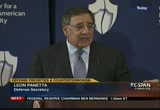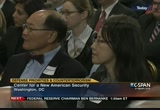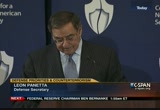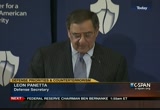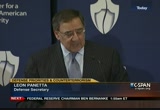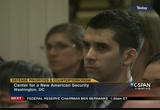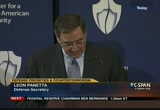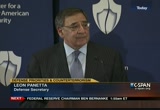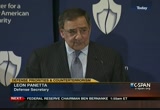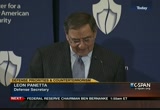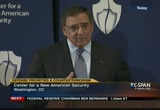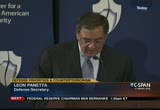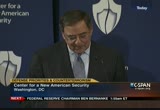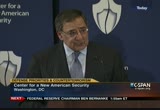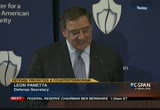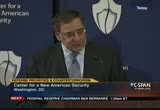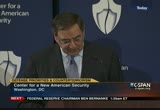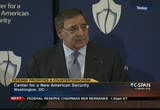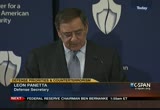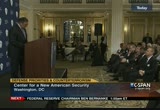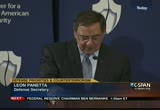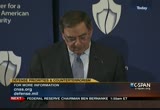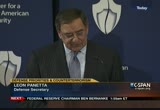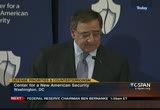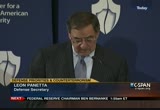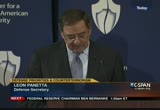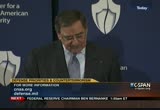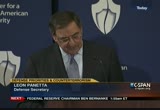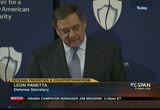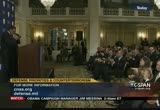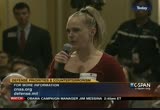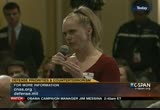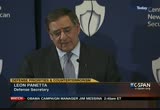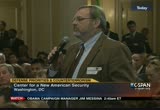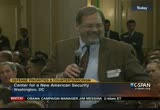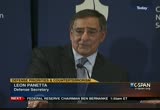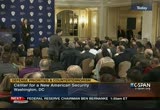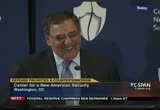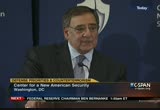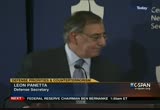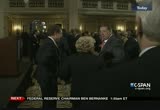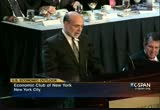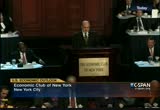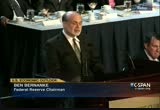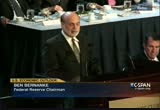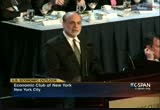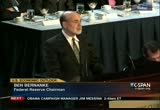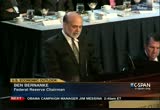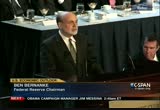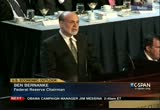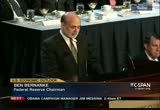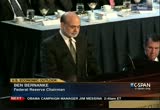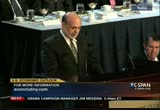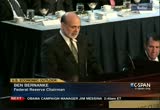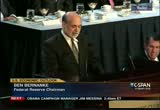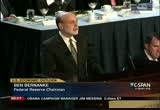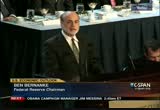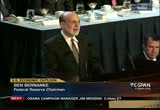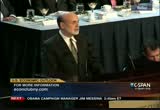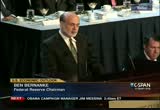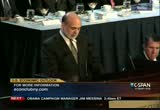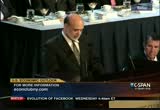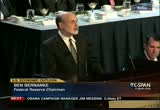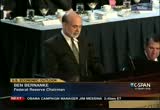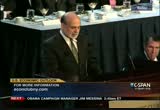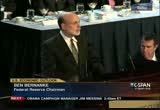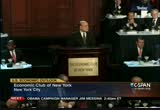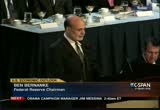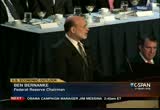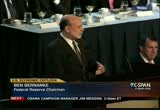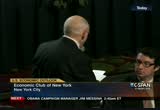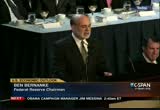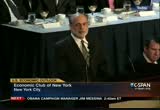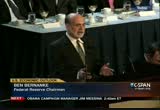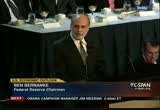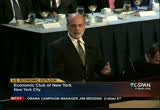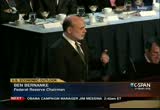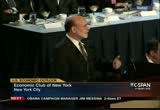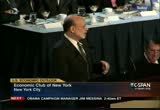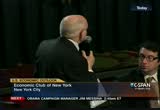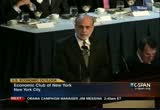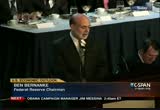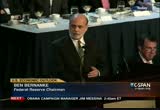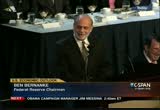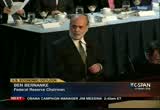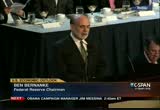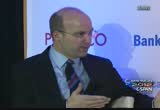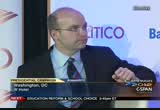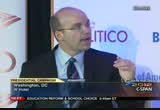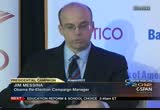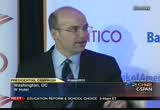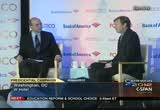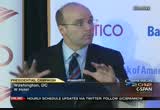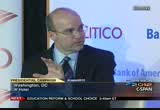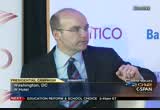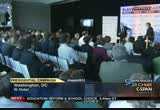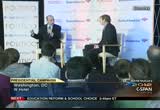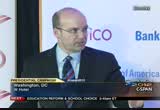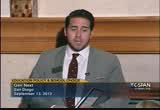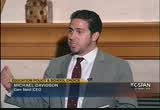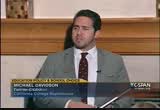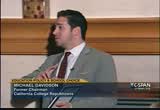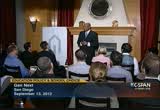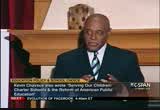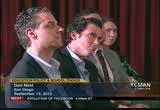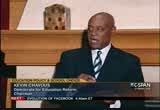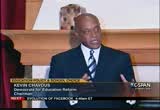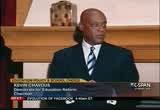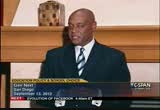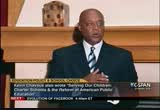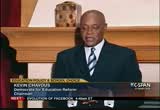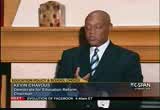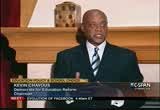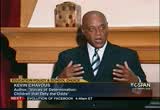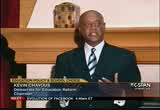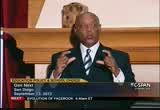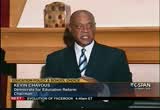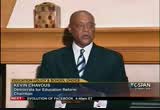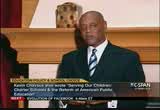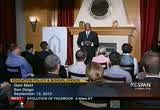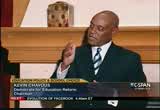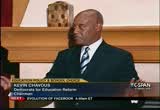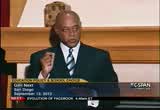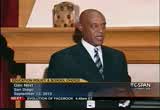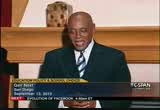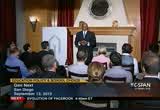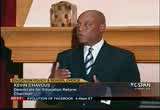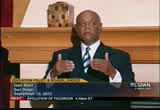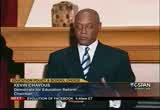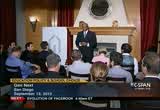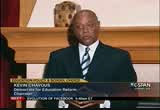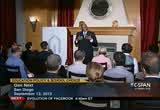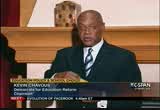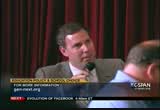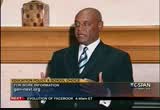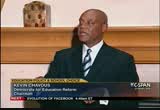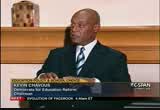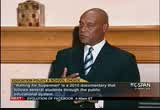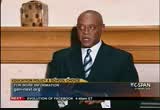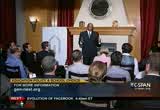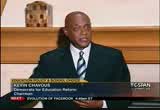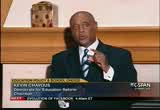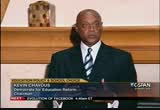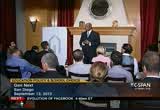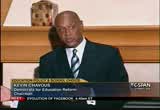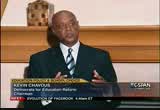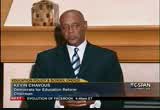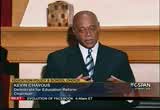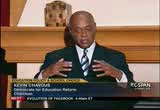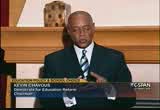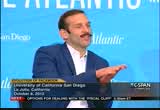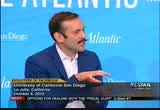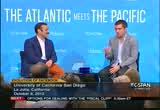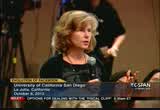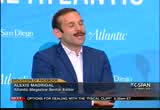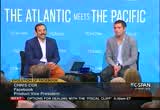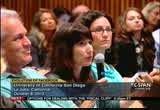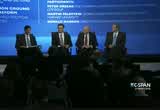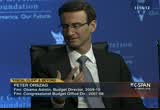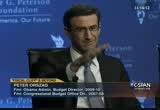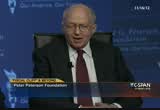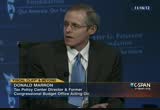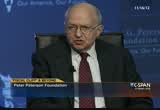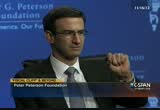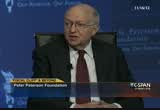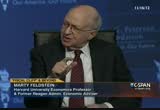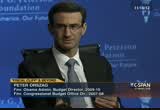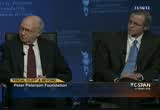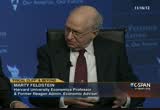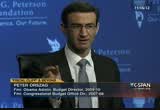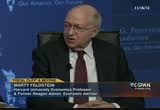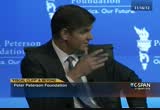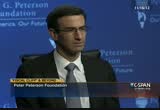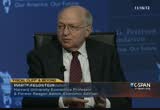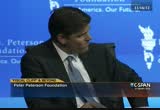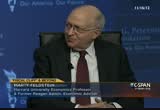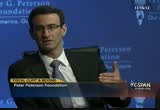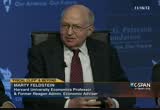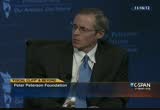tv Capitol Hill Hearings CSPAN November 21, 2012 1:00am-6:00am EST
1:00 am
pacific to make clear we are going to continue to have a strong force projection in the pacific. it is important to our economic security and our national security to be able to do that in the future. in an edition, at the same time i have got a force deployed in trying to rebalance the pacific, i have got a significant presence in the middle east to deal with the threats in the middle east. i have a significant presence to deal with any potential threat we have to deal with in that region as well i've got to be able, we have to be able to take care of our service members and our veterans and military families. the sacrifices they've made, they deserve that we stand by the commitments we have made to
1:01 am
them. and particularly in light of the force structure reductions, which are going to take place, we've got to make sure that we provide them the support system so they can return to their communities and to their families and be able to re-establish their lives. all of that is out there and all of that are issues that we have to think about and we have to be prepared in order to protect the national security of this country. we have to be prepared to deal with. but tonight, i wanted to focus on the goal that still remains at the top of the priority list, as it must. goal that the president made very clear, that we have a responsibility to disrupt, degrade, dismantle and ultimately defeat those who attacked america on 9/11.
1:02 am
al qaeda. since september 11, 2001, our country has worked relentlessly to bring those responsible for the worst terrorist attacks in our history to justice. we have made very clear that we are at war with al qaeda. we've also made clear in going after osama bin laden and dozens of others that nobody attacks the united states and gets away with it. and we have made clear that we will do everything possible to ensure that such an attack never , never happens again. that means counterterrorism will continue as a key mission to our
1:03 am
military and intelligence professionals. as long as violent extremists pose a direct threat to the united states, our allies and global interests, we have a responsibility to counter that threet. during my tenure as director of the c.i.a. and secretary of defense, i have truly been privileged to meet and work with thousands of professionals who have made this fight their fight, who have put their lives on the line for their country and who have built the most effective global counterterrorism network the world has ever seen. their work, i believe, has made the american people safer. the united states more secure.
1:04 am
and has put al qaeda on the defensive. let me describe some of the progress that has been achieved in this fight against al qaeda. first of all, with respect to core al qaeda in afghanistan and pakistan, and that's where the leadership of al qaeda after 9/11 found refuge. our military forces, our intelligence professionals, our diplomats, our development experts have taken the fight to al qaeda's leadership. first through dramatically expanded counterterrorism operations on the afghanistan-pakistan border. and second, through a renewed, revitalized and properly resourced effort to help build an afghanistan that can secure and govern itself. and that's the fundamental mission in afghanistan is to ensure that that country can govern and secure itself so it
1:05 am
will never again become a safe haven for al qaeda. over the last few years, al qaeda's leadership, their ranks, have been decimated and includes the loss of four of al qaeda's five top leaders in the last 2 1/2 years alone. osama bin laden, sheikal massry, al rocman and al libby what has been the present sees campaign in the history of war fair and numerous operational priorities and commanders in this region have been killed or captured. this pressure has significantly
1:06 am
demoralized and weakened al qaeda in terms of their core capability and seriously disrupted their active plotting against our homeland. the broader military campaign in afghanistan has also been central to our efforts to disrupt and dismantle and defeat al qaeda. that is why roughly 68,000 american troops remain in afghanistan today supporting the asap mission and our afghan partners. together they are battling the violent insures that seeks to topple the afghan government and have not given up on that effort and they seek to be able to return to afghanistan in order to provide sanctuary for extremists. if we are to defeat al qaeda,
1:07 am
that cannot happen. and make no mistake, we remain determined to prevent al qaeda from ever again launching a terrorist attack on america from safe havens inside afghanistan. over the past two years since the 33,000 surge troops were ordered by president obama and arrived in afghanistan, we have continued to put pressure on the taliban-led snurs and made real progress and i believe building an afghanistan that can secure and defend itself against that threat. earlier this month, there was an in-depth assessment of the snurs following the conclusion of the surg. by nearly every indication the
1:08 am
insurgency has been weakened. the violence decreased in 2011 and 2012. the insurgency has been pushed out of population centers and strategic areas. security dramatically improved this year in most of afghanistan's largest municipalities with a drop in kabul and 62% in kandahar. casualties have been reduced, declining by 30% this year. these signs of progress are real. and so are the challenges that remain. this is an snurs that is resilient and they will do everything they can to project
1:09 am
strength to afghan community. the taliban claims responsibility with the inside terrorist attacks and have launched high-profile attacks and assassinations and will continue to do that. but in the face of these tactics, we have been able to maintain strong international unity and a strong commitment to finish the job. as the insurgency has been rolled back, we have vastly improved the capabilities of the afghan national security forces to maintain these gains after most of the international forces will have departed. every day, every week, every month, afghan forces are shouldering more and more of the burden. 2011, i mentioned this time and time again, i believe, marked an
1:10 am
important turning point in the war effort, because we were able to see afghan forces become operational and take charge of security. in 2012, that process of transition took firm hold across the country. the transition is now well under way. we have transitioned an area that involves 75% of the afghan population. and that population is increasingly secure. as a result, we are on track for two key milestones. one is that the afghans will be in the lead throughout the country for security in mid-2013. and afghans will ultimately take full responsibility for security by the end of 2014. after 2014, the united states has made clear through a
1:11 am
strategic partnership agreement that we will maintain an enduring presence and a long-term commitment to afghans' security. and nato made a similar commitment to a post-2014 afghanistan at the chicago summit last may. all of this sends a very simple and a very powerful message to al qaeda, to the taliban and to the violent extremeist groups who want to regain a safe haven in afghanistan. we are not going anywhere. our commitment to afghanistan is long-term, and you cannot wait us out. this is important. because al qaeda, the taliban and other associated forces under pressure in pakistan, continue to view the rugged terrain of northeastern afghanistan especially kunar
1:12 am
province as a viable safe haven. a relentless and effective counterterrorism effort conducted by our special operation forces this year made clear we will not allow them to regain that sanctuary. as a result of prolonged military operations, al qaeda has been significantly weakened in afghanistan and pakistan. its most effective leaders are gone. its command and control have been degraded and its safe haven is shrinking. al qaeda's ability to carry out a large-scale attack on the united states has been seriously impacted. and as a result, america is safer from a 9/11-type attack. these gains are real. but it is important to point out
1:13 am
that even with these gains, the threat from al qaeda has not been eliminated. we have slowed the primary cancer, but we know that the cancer is also spreading to other parts of the global body. two examples of that spreading al qaeda presence, yemen and somalia. for years, our eyes have been wide open to the growing capabilities of yemen-based al qaeda in the arabian peninsula, which has also targeted our homeland for attack. so violence and chaos in yemen itself. we have struck back in an effort to dismantle this group through
1:14 am
a very close partnership with the government of yemen, by training local security forces. we are building and training a counterterrorism force poising to be the most effective over the long-term and that force is the people of yemen themselves. by participating, we have put pressure and giving the people of yemen to free themselves from the grip of these terrorists. a qap leaders who have targeted the united states have met their demise. plots have been disrupted and innocent lives have been saved. but this fight has not been easy. as yemen's government became destabilized last year, aq ap
1:15 am
took control of several key cities in the south of yemen. in the months since, their advances have been largely reversed through a renewed and even more effective partnership with yemen's new government. our work in yemen is far from done. dismantling them, eliminating it as a threat to the united states will ultimately require sustained pressure, more u.s. training and assistance, close partnership with the government and people of yemen and political support for transition. another country we have made good progress is somalia. for years -- when i became director of the c.i.a., it was obvious that somalia was a failed state. the failed state where the militant group controlled large
1:16 am
pieces of territory. declared allegiance to al qaeda and brought about a humanitarian crisis and planned attacks in the region. but there, too, we have seen significant progress. in large part because of an effective partnership between the united states and the african union mission in somalia. the result of these efforts is an al shabaab that has lost 50% of the territory it held in 2010 and since losing control of mogadishu, hundreds of fighters have vend surrendered. these forces took the strong hold and a number of other strategic towns and as a result today, al shabaab is diminished
1:17 am
as a threat and we continue to work every day to consolidate these gains against these terrorists. but still, our challenge is far from over. yes, we have decimated core al qaeda. and yes, we have made notable progress against its associated forces in yemen and somalia. and yes, we have reduced the chance of a large-scale terrorist attack against the united states. but al qaeda, the al qaeda cancer has also adapted to this pressure by becoming even more widely distributed, loosely-knit and gee graphically disbursed. fight against al qaeda has taken a new direction, one that demands that we be especially adaptable and resilient as we
1:18 am
continue the fight. president obama has made clear, we will fight not just through military means, but by harnessing every element of american power, military, intelligence, diplomatic, law enforcement, financial, economic and above all, the power of our values as americans. al qaeda has long sought to operate in areas beyond the reach of effective security and governance. after being left on the sidelines of the momentous changes that swept through -- al
1:19 am
qaeda affiliated groups are taking control of territories in the north and pose an emerging threat. we are concerned about libya, where violent extremists and affiliates of al qaeda attacked and killed innocent americans in benghazi. with respect to that attack, let me be clear, we will work with the libyan government to bring to justice those who perpetrated those attacks. to protect americans at home and overseas, we need to continue to
1:20 am
pursue al qaeda wherever they go, whatever form they take, wherever they seek to hide. we must be constantly vigilant. we must be constantly determined to pursue this enemy. but what will it take to achieve the end of al qaeda or at least the beginning of the end? first, it will be essential to finish the job that we started and that we must complete in afghanistan and we are on track to do that. as we and our nato partners agreed, afghans need to be responsible for their own security by the end of 2014. this transition is our goal and it's the afghans' goal as well, but will require continued commitment by the international community and the united states in order to help the afghan
1:21 am
forces achieve that goal. we have come too far, we have invested too much blood and treasure not to finish the job. there are no shortcuts, nor can we afford to turn away from this effort when we are so close to achieving success and preventing al qaeda from ever returning to this historic epicenter for violent extremism. second, we will need to maintain pressure on al qaeda in pakistan, aq ap in yemen and forces in somalia. that means dismantling their capabilities, remaining vigilant to make sure the threat does not reconstitute including pakistan. despite challenges in the
1:22 am
bilateral relationship between the united states and pakistan, one area in which our national interests continue to align, continue to align, is defeating the terrorists on pakistan soil that threaten both of us. we remain committed to pursuing defense cooperation based on these shared interests. thirdly, we must prevent the amergens of new safe havens for al qaeda elsewhere in the world that could be used to attack the united states or our interests. the last decade of war has shown that coordinated efforts to share intelligence, to conduct operations with partners are critical to making sure that al qaeda has no place to hide. we will expand these efforts, including through support and partnership with governments in
1:23 am
transition in the middle east and north africa. this campaign against al qaeda will largely take place outside declared combat zones using a small footprint approach that includes precision operations, partnered activities with foreign, special forces operations and capacity-building so that partner countries can be more effective in combating terrorism on their own. wherever possible, we will work through and with local partners supporting them with the intelligence and resources they need in order to deter these common threats. for example, in mally, we are working with our partners, in western africa, who are committed to encountering the regional threat through regional statistic built.
1:24 am
fourth, in support of these kinds of efforts, we have to invest in the future. in new military and intelligence capabilities and security partnerships. our new defense strategy makes clear that the military must retain and even build new counterterrorism capabilities for the future. as we reduce the size of the military, we are going to continue to ramp up special operations forces, which have doubled in size from 37,000 on 9/11 to 64,000 today. special operations forces will grow to 72,000 by 2017. we are expanding our fleet of predatory and reaper u.a.v.'s over what we have today. these enhanced capabilities will enable us to be more flexible
1:25 am
and agile against a threat that has grown more diffuse. we are continuing to invest in building partner capacity, including through section 1206 authority to train and equip foreign military forces. our new global security contingency fund has been very helpful in placing new emphasis on cultivating regional expertise in the ranks, which brings me to the final point, that too often takes a back seat to our operations against al qaeda. what do we do, what do we do to prevent extremeist ideologies from attracting new recruits in the future? over the past decade, we have successfully directed our military and intelligence capabilities at fighting
1:26 am
terrorism. and yet, we are still struggling to develop an effective approach to address the factors that attract young men and women to extreme ideology. and to ensure that governments and societies have the capacity and the will to counter and reject extreme violent extremism. to truly end the threat from al qaeda, military force aimed at killing our enemy alone will never be enough. the united states must stay involved and invested through diplomacy, through development, through education, through trade in those regions of the world where violent extremism has flourished.
1:27 am
that means continued engagement, continued engagement in pakistan and following through on the commitments we have made in afghanistan to their long-term stability. secretary clinton has also outlined a comprehensive strategy in north and west africa, combining security assistance, economic development, strengthening democratic institutions, advancing political reform. these regions are undergoing a historic transition that offers many in the region hope for a better future. but these changes, unless influenced by the international community could result in greater turmoil. the american people were outraged by the loss of
1:28 am
ambassador chris stevens and three others in benghazi. they were supporters of peace and friends of libya and the libyan people have turned against the violent extremists that have killed them. of course we will be vigilant and we will posture our military and intelligence forces to prevent and, if necessary, respond to threats of violence against our interests throughout the middle east and north africa, including threats against our embassies and consulates and our diplomats themselves. but to truly protect america, we must sustain and in some areas deepen our engagement in the world. our military, intelligence, diplomatic and development efforts are key to doing that. after all, we are confronting a
1:29 am
number of challenges in the middle east and north africa. at some point, we must find ways to peacefully resolve the war in syria, the conflict between israel and the palestinians and to the destabilizing threat from iran. and every time and overtime, we also must address religious, economic and cultural differences that create tension and that are exploited by extremists. still, as our country emerges from a decade of large-scale conflict and confronts new fiscal constraints here at home, i frankly worry that our political system will prevent us from making the investments in diplomacy and development that we need to ensure we protect america's interests in these
1:30 am
volatile regions of the world. these investments, unfortunately, lack a constituency in the congress at a time of great fiscal pressure. indeed, we face the prospect of budget sequestration. it would be devastating to national security not just because of what it does to our national defense, but also for what it does to these programs that support diplomacy and enhance our quality of life. our men and women in uniform know too well what sacrifice is all about for the sake of our nation. for more than a decade after we were attacked on september 11, they have fought and they have bled on distant battlefields and have made our country safer.
1:31 am
if we turn away from these critical regions of the world, we risk undoing the significant gains they have fought for. that would make all of us less safe in the long-term. this is not a time for refrenchment. this is not a time for isolation. it is a time for renewed engagement and partnership in the world. after iraq and afghanistan, we are entering, as i said, a new and different era with a multitude of different threats and challenges. the united states military must prepare for these challenges and we will. but america must continue to lead this fight against al qaeda. our partners demand it. the threat demands it. and our fellow citizens demand it. on september 11, 2001, the
1:32 am
united states was thrust into a war that we did not ask for, nor did we seek. over 11 years later, we have fought back with a vengence to make clear we will do whatever we must to make sure 9/11 never happens again. we have made america safer. but we must not rest until we have made america safe. today and tomorrow. thank you very much. [applause]
1:33 am
>> secretary panetta has graciously agreed to take a few questions from the audience. when i call on you, please tell us your name and affiliation and remember to ask a question. very short, ask a question, right here with the red sweater. >> i'm the executive director of the codea support foundation. i'm an 11-year army wife. we've talked a lot about the mental health challenges that are facing our troops and their families. you know those numbers as well as i do. we are losing a service member every 24 hours, 18 veterans a day and army wives have killed
1:34 am
themselves. i bring this up to you because yible it -- i believe this is a national security issue and not just a moral obligation. we never created this many programs or unprecedented effort to stem the tide of suicides and mental health challenges that we're facing. i wanted to ask you about a different strategic approach to the problem. i feel like we need someone with a direct line of report to you, secretary of defense at the 0-10 level that this is their only job. the general did a terrific job and there are precedents for this. dodge-starb arch rmp d. we have a lot of efforts going on that aren't connected and if
1:35 am
there was leadership that was connect todd this, this would make a large difference in our lives. >> thanks for that question. defense department is a big bureaucracy. got three million people. and they are very dedicated people and very dedicated professionals, but oftentimes, the ability to focus on a problem and be able to deal with it suddenly requires that they have to change direction and suddenly understand that they are dealing with something that's serious and a threat. and that's the way i feel about you know, the mental health problems that are impacting on our forces. you know, look, part of this is
1:36 am
the impact of over 10 years of war and the stress that's involved in deployment after deployment after deployment after deployment. part of it reflects the stress in society generally. in many ways, when you look at our suicide rate, the fact is that if you look at the general society, there's an increase in suicide rates as well, part of it due to family stress, drinking, drugs, financial stress and there are a whole series of issues that play a role in creating this kind of pressure. and, look, the fact is that when it comes to mental health, i wish there were a simple silver bullet that could deal with that problem, but it is complex and there are a number of factors that are at play.
1:37 am
but that means that we have to devote every resource we can to try to deal with that. and i think it is important for us to be able to increase the amount of mental health professionals that deal with this problem, that can provide counseling and guidance, that can understand what needs to be done. we also, frankly, need to increase peer awareness of what's going on so that they can spot the problems and be able to deal with it. one of the things i found is that we have got to be able to have those who are at the platoon level, at the squad level, leaders who are looking at the people they are responsible for, looking into their eyes, seeing the potential problems and getting ahead of it
1:38 am
and being able to respond. and obviously, all of this will require additional resources as well in order to respond. i do believe -- i appreciate what you're saying -- i do believe to create a focus on a problem like this does require that we do everything possible to make sure that it's not an issue we talk about today and forget tomorrow. one of the things i have done with the chairman of the joint chiefs and all the service chiefs, we have got to continue to stress this issue. and we have to continue to look at it. and what i have done with my under secretary responsible for this area is to say, i want regular reports on what's going on with regards to this area. i want to know what's happening. i want to know what we're doing to confront it. frankly, the person who's responsible is me and i have to
1:39 am
kick ass and make sure something is done about it and i will. but i also have to make sure that everyone else is responsible that the service chiefs for each of the services are doing exactly the same thing. [applause] >> yes. right here. >> mr. secretary, thank you for -- tom goldberg. i'm residing next door. thank you for all of those tough nuts that you have had to crack and all of the hard work you have put into solving so many of the problems we faced. in 1998, working over at n.s.c. and working with 2 k and outsource or problems and other
1:40 am
things we harvested as a result of those exercises. you have come out with an instruction that was initiated by under secretary kendall two weeks ago yesterday that we very much applaud having to do with supply chain integrity. what links these two events together in my mind is this. in 1998 and 1999, we lacked the resources in the united states to solve the y2k problem. today, we have difficult veering ent policy directives not intentionally so, but that deal with the matter of either reducing the costs of services that the department has to buy through the efficiency memo, essentially -- ok the question
1:41 am
is can you marry the efficiency memo and the new instruction on supply chain so we don't lose the talent that resides now within the department, much of which is older men and women who will leave and we will lose their capabilities? >> thank you for that. yes. i think we have got to continue to emphasize this area, because, you know, we are, as you say -- look, expertise in this area is something that is not easy to come by and you have to build it and you have to build people who know the systems and have to understand what's involved with it. and, you know, it's something that just generally in government service, we build
1:42 am
tremendous expertise only to have it move on and then we have to recreate it all over again and that's a terrible mistake. what we have to do is build expertise and then continue to hopefully inspire people so that they continue at it. this is an area -- look, the whole area of dealing with computers, of dealing with the threat that we face as we turn the century, but also just dealing generally with the whole cyber world that we're now involved with, this is an area that demands tremendous expertise and tremendous capability. fortunately at n.s.a., we have some tremendous experience. we've got good people that are involved in it. but very frankly, if we're going to stay on the cutting edge of what's happening with regards to the changes that are occurring, we have got to invest more in
1:43 am
that area. i have to have the very best. and keith alexander is a bright guy and capable person, but i have to make sure that behind him are young people who understand what the hell this is all about and can guide us in order to ensure that we protect this country in the future. this is a complicated area. it is not easy and what is most disturbing of all, every time i try to get help from the congress, they kind of walk away from this issue. they just refused to pass in the congress legislation that would assist us in dealing with the whole cyber arena. i have got to have -- i have got to be able to have the private sector working with us when it comes to these issues to develop that kind of partnership and unfortunately, i can't have the private sector help us provide information on what's happening out there unless i protect them
1:44 am
from lawsuits and protect them from litigation. that's the whole point of trying to develop this legislation. and i can't for the life of me understand why it's so damn hard for congress to do the right thing on this issue. >> the last two questions, we are going to have a competition on who can frame the question most concisely. tony. you are the first contestant. >> realistically what chance will the u.s. have to succeed if the safe havens aren't dealt with more try dently than they
1:45 am
have been to date? >> the success in afghanistan is dependent on having a pakistan that is willing to confront terrorism on their side of the border and prevent safe havens. you know, look, i think that -- right now, the ability to develop a security force in afghanistan that is able to provide security that can establish operational capability to confront threats on the afghan side of the border is extremely important to the future. we need to have -- we are building this 352,000 force. that is important for our ability to make the transition and have an afghanistan that can, in fact, provide security and that's going to be an
1:46 am
important key. but to be able to succeed in afghanistan is also going to require -- i mean the threats i see that we have to worry about in the future are the following. number one, we have to have an afghanistan that can govern itself, that can move away from corruption, that can, in fact, have the capability to provide the kind of governance that you need in order to be able to truly secure that country and govern that country for the future. that's an area that i think demands a lot more attention for the future. the other is pakistan, because of the safe havens in pakistan and the ability of terrorist groups to move across that border and to attack in afghanistan. and obviously the challenge that that represents. i mean, obviously, we can take them as they cross the border. we have been going after them
1:47 am
operationally when they do that. but the problem is that when they move back and escape into a safe haven, it makes it very difficult to complete the job. so in order to really have a secure afghanistan, ultimately pakistan is going to have to take responsibility for taking on these terrorists and eliminating the safe havens. >> last question. here. >> done lauren, former defense sect for homeland security. what can and will you do to break the log jam and get the convention of the law of the sea ratified? [laughter] >> this may require tanks and
1:48 am
bombers. [laughter] >> this is really one of the -- i have to tell you, one of the most disturbing things. i talk about you know one of the national security threats is the question of whether or not the leaders we elect can, in fact, govern and can, in fact, deal with the challenges that face this country. when i go abroad -- i just came back from asia and i was meeting with the defense ministers and one of them said it's great you are rebalancing the pacific, but can you sustain that when you have a congress that is prepared to do sequester or walk off a fiscal cliff? and i said, you know, that issue of whether our democracy can
1:49 am
truly function and have leaders that are prepared to make the decisions that have to be made in order for this country to govern itself is, i think, you know the issue that will determine ultimately whether we have national security. and it's the same way with the law of the seas. i go to the asia pacific region and they are having territorial dispute over these rocks out there -- [laughter] >> obviously, it's about the resources that are offshore those rocks. but they are having these dispute over these areas. and what are -- one of the arguments i make is, wait a minute. we have to maintain freedom of the seas and maintain navigation rights and some of these countries look at me and say, you know, what are you talking about? you haven't approved the law of the seas treaty. how can you tell us what the hell to do here?
1:50 am
they're right. they're right. we are the only industrialized country that has not approved that treaty, the only industrialized country that has not approved that treaty. in order for us to have credit built to be able to argue about freedom of navigation, maritime rights, that is essential, in order for us to deal with the challenges that we are facing as a result of global warming and the northwest passage and potential for resources out there, there are countries that are making claims there and we can't even engage with those countries because we haven't approved the law of the seas treaty. it's an outrage, outrage that we have not done that. i think there are good members up in the senate who agree with everything i have just said but constantly running into a wall because of some ideological reason for a few members this has become an issue they are
1:51 am
going to fight and they are going to stop as best they can. but if this country is to provide leadership in the 21st century, if we're to do what we have to do in trying to guide countries so that they in fact are able to protect their interests and be able to engage in the kind of commerce and economic development that is important for the future, if we're going to be a part of that , then we have to be credible. and that means that we need to pass the law of the seas treaty. i hope that ultimately happens. coming out of this election, i guess my prayer, my prayer coming out of this election is that leaders on both sides recognize that the one message the american people sent is for the leaders of this country to do their job and govern this country. that's the message they need to
1:52 am
understand. thank you. [applause] >> mr. secretary, thank you so much for being so generous with your time tonight, thank you for your strategic insights, for your candor and for your service and thanks for you coming out the week of thanksgiving and i hope you have a wonderful thanksgiving and thank you for hosting us here tonight. good evening. captions copyright national cable satellite corp. 2012] [captioning performed by national captioning institute]
1:53 am
>> the name of this place still resonates with the shattering in the hearts of the american people and more than any other people connected to the civil war, gettysburg and americans retain the knowledge what happened here was the crux of our terrible national trial and even americans who aren't sure precisely what transpired on these fields know the glory and tragedy we associate with the civil war resides here. >> lincoln director stephen spielberg, part of a four-day holiday weekend beginning thursday on c span 3's american history tv.
1:54 am
federal reserve chairman ben bernanke is urging washington to avoid the tax increases and budget cuts that will begin to take effect next year. while speaking at the economic club of new york, he called for an increase in the federal debt limit saying a dault could result in an economic crisis. >> thank you very much. good afternoon. it is nice of you to join me for lunch at this intimate gathering. [laughter] i know many of you and your friends and neighbors are recovering from the events of hurricane sandy -- i want to let you know our thoughts are with everyone who has suffered during the storm and its aftermath. it has been a very challenging time for new york city. i think you have shown quite a bit of fortitude in coming back and getting back to business. my remarks today are going to focus on the reasons for the disappointingly slow pace of
1:55 am
economic recovery in the united states, and the policy actions that have been taken by the federal open market committee to support the economy. in addition, i will discuss important economic challenges our country faces as we close out 2012 and move into 2013, in particular the challenge of putting federal government finances on a sustainable path and the longer run while avoiding actions that would endanger the economic recovery in the near term. the economy is continuing to recover from the financial crisis and recession, but the pace of the recovery has been slower than fomc participants and others had hoped or anticipated when i spoke here last, three years ago. indeed, since the recession trough in 2009, growth in real gdp has averaged only a little more than 2% per year. similarly, the job market has improved over the past three
1:56 am
years, but at a slow pace. the unemployment rate, which peaked at 10% in the fall of 2009, has since come down 2%, to just below 8%. this is a welcome decline, but it has taken a long time to achieve the progress, and the unemployment level is still well above its level prior to the onset of the recession and the level that our colleagues and i think can be sustained once a full recovery is achieved. many features of the job market, including the historic high level of long-term unemployment, the large number of people working part-time because they have not been able to find full-time jobs, and the decline in labor force participation reinforce the conclusion that we have some way to go before the labor market can be deemed healthy again. meanwhile, inflation has generally remained subdued. as is often the case, inflation has been pushed up and down in recent years by fluctuations in the price of crude oil and other globally traded
1:57 am
commodities, including the increase in farm prices brought on by the summer drought. with longer-term inflation expectations remain stable, the ad and flow of commodity prices have led to only transfer movements in inflation. indeed, since the recovery began about three years ago, consumer price inflation as measured by the personal consumption expenditures index has averaged almost exactly 2%, which is the fomc longer run objective. because ongoing slack in labor should continue to restrain wage and price increases, and the expectations of inflation continuing to remain well anger, inflation over the next few years is likely to remain close to or a little below the committee's the objective. as background for our monetary policy decision making, we add the reserve have spent a good deal of effort attempting to
1:58 am
understand why the recovery has not been stronger. studies of previous financial crises proved one good place to start. this literature, as many of you know, has found severe financial crises, particularly those associated with housing booms and busts, have often been associated with many years of subsequent weak performance. while this result allows for many interpretations, one possibility is the financial crisis or the deep recessions that typically accompany them may reduce an economy's potential growth rate at least for a time. the accumulating evidence does appear consistent with the financial crisis and associated recession having reduced the potential growth rate of our economy somewhat at least during the past few years. in particular, slower growth of central output would expand why the unemployment rate has declined in the case of the relatively modest output gains we have seen during the recovery.
1:59 am
output normally has to increase at about a longer-term trend just to create enough jobs to absorb new entrants to the labor market. trend growth is usually needed to reduce unemployment. the fact that unemployment has declined in recent years despite economic growth at 2% suggests that the growth rate of potential output must have recently been lowered from the roughly 2.5% rate that appeared to be in place before the crisis. there are a number of ways in which the financial crisis could have slowed down the greater growth of the economy's potential. for example, the extraordinarily severe job losses that fog the crisis, especially in housing related industries, may have exacerbated for a time the mismatch between jobs available and the skills and locations of the unemployed. meanwhile, the very high level of long-term unemployment has probably led to some loss of skills and labor force attachment among those workers. these factors may have pushed up to some degree the so-called
2:00 am
natural rate of unemployment. the rate of unemployment that can be sustained under normal conditions. a reduced labor force labor force participation as well. the pace of productivity gains also have been restrained by the crisis as business investment declined sharply. increases in risk aversion and uncertainty combined with tight credit conditions may have impeded the commercial application of new technologies and slow the pace of business formation. importantly, however, all the the nation's potential output may have grown more slowly than expected in recent years, this slowing the scenes at best a partial explanation of the disappointing pace of the economic recovery. in particular, even though the natural rate of unemployment have increased somewhat, a variety of evidence suggests that any such increase has been modest and a substantial slack remains in the labor market. for example, the slow pace of employment growth has been widespread across industries and regions across the economy.
2:01 am
that pattern suggests a broad base shortfall in demand rather than a substantial increase in mismatch between available jobs and workers. because greater mismatch could imply that the demand for workers would be strong in some regions and industries but not weak across the board. likewise, a mismatch of jobs and workers -- if that were the predominant problem, we would expect to see wage pressures developing in industries related demand is strong. in fact, wage gains have been subdued in most industries and parts of the country. the consensus among my colleagues at the fomc is that the unemployment rate is still well above its lumber run sustainable level, perhaps by 2% or 2.5% or so.
2:02 am
a critical question, then, is why the significance slack in the job market still remains after three years of recovery. a likely explanation, which i will discuss further, is that the economy has been faced with a variety of headwinds that have hindered what otherwise might have been a stronger cyclical rebound. if so, we may take some encouragement from the likelihood that there are potentially two sources of gdp growth in the future. first, the fact of the crisis on potential output should fade as the economy continues to heal. second, the head winds continued to dissipate, as i expect, growth should pick up further as many who are currently unemployed or out of the labor force find work. one of the headwinds slowing return of our economy -- what are the headwinds slowing the return of our economy to full employment? some come from the housing sector. previous recoveries have been associated with a vigorous
2:03 am
rebound in housing as rising incomes and a decline mortgage interest rates have led to sharp increases in the demand for homes. but the housing bubble and its aftermath have made this episode quite different. in the first half of the past decade, both housing prices and construction rose to unsustainable levels, leading to a subsequent collapse. house prices declined almost one-third nationally from 2006 until early this year. construction of single-family homes fell by two-thirds and the number of construction jobs decreased by nearly one-third. the associated surge in delinquencies on mortgages helped to trigger the financial crisis. recently, home prices and construction have moved up. these developments are encouraging and it seems likely that residential investment will be a source of economic
2:04 am
growth and new jobs over the next couple of years. however, welt historical low mortgage interest rates and a drop in home prices have made housing exceptionally affordable, a number of factors continue to prevent the sort of powerful housing recovery that is typically has typically occurred in the past. lenders have maintained tight curbs and conditions on mortgage loans, even for potential borrowers with relatively good credit. lenders said a number of factors, including ongoing uncertainty on the course of the economy, the housing market, and the regulatory environment. unfortunately, while some tightening of the terms of mortgage credit is certainly an appropriate response to the developments of earlier excesses', the pendulum appears to have swung too far, restraining the recovery in the housing sector. other factors slowing the
2:05 am
recovery in housing include the fact that many people remain unable to buy homes despite low mortgage rates. about 20% of existing mortgage borrowers owe more on their mortgages than their homes are worth, making it more difficult for them to refinance or sell their homes. also, a substantial overhang of vacant homes, either for sale or in the foreclosure pipeline, continue to hold down prices and reduce the need for construction. while these headwinds have clearly started to abate, the recovery in the housing sector is likely to remain moderate by historical standards. a second set of headwinds stems from the financial conditions facing potential borrowers in credit and capital markets. after the financial system seized up in late 2008 and early 2009, global economic activity contracted and credit markets suffered.
2:06 am
although dramatic actions by governments and central banks around the world help these markets to stabilize and begin recovery, tough credit and a high degree of risk aversion remained. they have restrained economic growth in the united states and other countries as well. measures of the condition of u.s. financial markets and institutions suggest gradual but significant progress achieved since the crisis. for example, credit spreads on corporate bonds and syndicated loans have narrowed considerably, and equity prices have recovered most of their losses. in addition, indicators of market stress and illiquidity, such as short-term funding markets, have generally returned to levels near the scene before the crisis. one gauge of the overall improvement of financial markets is the national financial conditions index, maintained by the fed reserve bank of chicago. this index shows that financial conditions viewed as a whole
2:07 am
are now about as accommodative as they were in the spring of 2007. in spite of this brought improvement, the harm inflicted by the financial crisis has yet to be fully repaired important segments of the financial sector. one example is the continued weakness of some categories of bank lending. banks' capital positions and overall asset quality have improved substantially over the past several years, and overtime the balance sheet improvements will position banks to extend certainly more credit to back dependent are worse. -- a bank-dependent borrowers. indeed, some types of credit, such as commercial and industrial loans, have expanded notably in recent quarters. nonetheless, banks are being a conservative in extending loans to many consumers and some businesses, likely even beyond the restrictions on the supply of mortgage credit i talked about earlier. this caution in lending by banks reflects their continued desire to guard against risks posed by economic weakness.
2:08 am
a common risk at present any major source of financial headwinds are the couple of years is the fiscal and financial situation in europe. the situation was not anticipated when the united states recovery began in 2009. elevated levels of stress and european and economies and uncertainty about how problems will be resolved are adding to risks that institutions, businesses, and households must consider when making lending and investment decisions. negative sentiment regarding your appears to have weighed on u.s. equity prices and prevented u.s. credit spreads from narrowing even further. weaker economic conditions in europe and other parts of the world have also weighed on u.s. exports and corporate earnings. policy makers in europe have taken some important steps recently and in doing so have contributed to some welcome easing in the financial
2:09 am
conditions. in particular, the new out right monetary transactions program of the european central bank under which it can purchase sovereign debt of vulnerable euro area countries that agree to meet prescribed conditions have helped. european governments are also strengthening their financial firewalls and moving toward a greater fiscal and banking union. greater improvement in financial conditions will depend in part on the extent to which european policymakers follow through on these initiatives. a third headwind to the recovery and one which may intensify in the coming quarters is u.s. fiscal policy. although fiscal policy at the federal level is quite a expansionary during the recession and early in the recovery, as the recovery proceeded the support provided for the economy by federal fiscal actions was increasingly offset by the adverse effects of a tight budget conditions
2:10 am
for state and local governments. in response to a large and sustained decline in their tax revenues, state and local governments had cut about 600,000 jobs since the third quarter of 2008 while reducing real expenditures for infrastructure projects by about 20%. more recently, the situation has to some extent reversed. the drag on economic growth for state and local fiscal policy has diminished as revenues have improved and pressures have eased for further spending cuts or tax increases. in contrast, programs have led federal fiscal policy to begin restraining gdp growth. indeed, under almost any plausible scenario the drag next year from federal fiscal policy on gdp growth will outweigh the positive effect on growth from fiscal expansion at the state and local level.
2:11 am
however, the overall effect of the federal fiscal policy on the economy in the near term and the longer run remains quite uncertain and depends on how policy makers meet two daunting fiscal challenges. one by the start of the new year, and the other by no later than the spring. what are these challenges? first, the congress will need to protect the economy from the full brunt of the current fiscal tightening built into law, the so-called fiscal cliff. the realization of all the automatic tax increases and spending cuts that make up the fiscal cliff absent offsetting changes would pose a substantial threat to recovery. indeed, by the reckoning of the congressional budget office, and that of many outside observers, a fiscal shock of that size would send the economy toppling back into recession.
2:12 am
second, early in the new year it will be necessary to approved an increase in the federal debt limit. the threat of default in the summer of 2011 fueled economic uncertainty and badly damaged confidence even though an agreement was ultimately reached. a failure to reach a timely agreement this time around could impose even heavier economic and financial costs. as policy makers face these critical decisions, they should keep two decisions in mind. first, the federal budget is on an unsustainable path. the budget deficit, which peaked in 2009, is expected to narrow further in the coming years as the economy continues to recover.
2:13 am
however, the cbo projects that under a possible such a policy assumptions the deficit could still be greater than 4% of gdp in 2018, assuming the economy has returned to its potential by then. moreover, under the protection, the deficit and the ratio of federal debt to gdp would subsequently returned to an upward trend. we should all understand that long-term projections of ever increasing deficits will never accept underpass because the willingness of lenders to continue to fund the government can only be sustained by a responsible fiscal plans and actions. a credible framework to set a better fiscal policy, one in which the ratio of federal debt to gdp eventually stabilizes or declines, is urgently needed to maintain stability. even as policy-makers address
2:14 am
the urgent issue of longer run out stability, they should not ignore a second key objective, to avoid unnecessarily adding to the head winds that are already holding back the economic recovery. fortunately, these objectives are compatible and mutually reinforcing. preventing a sudden and severe contraction in fiscal policy early next year will support the transition of the economy back to full employment, and a stronger economy will in turn reduce the deficit and contribute to achieving long- term fiscal sustainability. at the same time, a credible plan to put the federal government on a plan that will be sustainable in the long run could help keep longer-term interest rates low and boost confidence, thereby supporting economic growth today. coming together to find fiscal solutions will not be easy, but the stakes are high. uncertainty about how the fiscal cliff, the raising of the
2:15 am
debt limit, and the longer-term budget situation will be addressed appears already to be affecting private spending and investment decisions. and may be contributing to increased caution in financial markets with adverse effect on the economy. continuing to push off policy choices will only prolong and intensify these uncertainties. moreover, while the details of whatever agreement is reached to resolve the fiscal clip are important, the economic confidence of market participants and the general public will likely also be influenced by the extent to which our political system proves able to deliver a reasonable solution with a minimum of uncertainty and delay. finding long-term solutions with sufficient political support to be enacted may take time, but meaningful progress to this end can be achieved now if policy makers are willing to think creatively and work together constructively. let me now turn briefly to monetary policy.
2:16 am
monetary policy can do little to reverse the effects of the financial crisis may have had on the economy. however, it has been able to provide an important offset to the head winds that have slowed recovery. as you know, the federal reserve took strong easing measures during the financial crisis and recession. cutting the funds rate, the traditional tool of monetary policy, to nearly zero. we have provided accommodations from unconventional policy tools and putting downward pressure on long-term interest rates -- asset purchases that reduce the supply of longer-term securities outstanding in the market and communication about the future path of policy. most recently, after the september fomc meeting we announced the federal reserve would purchase additional mortgage-backed securities and would continue with the program
2:17 am
to extend the maturity of the treasury holdings. these additional asset purchases should put downward pressure on long-term interest rates and make broader financial conditions more accommodative. moreover, our purchases bring down mortgage rates, provide support directly to housing and thereby help mitigate some of the headwinds facing that sector. we announced he would continue purchasing, undertake additional purchases of long- term securities, and apply other policy tools until we get the outlook for the labor market has improved substantially in the context of price stability. although it is still too early to assess the facts of our most recent policy actions, yields on corporate bonds have fallen significantly on balance since the fomc's announcement. more generally, research suggests our previous asset purchases have eased overall financial conditions and provide meaningful support to the economic recovery in recent
2:18 am
years. in addition to announcing new purchases, at our september meeting we extended our guidance for how long we expect that exceptionally low levels of the federal funds rate will likely be warranted, at least through the middle of 2015. by pushing the expected period of lower rates further into the future we are not saying we expect the economy to remain weak until 2015. rather, we expect, as we indicated in our statement, that a highly accommodative stance of monetary policy will remain appropriate for a considerable time after the economic recovery strengthens. in other words, we want to be sure that the recovery is established before we begin to normalize policy. we hope that such assurances will reduce uncertainty and increased confidence among households and businesses, thereby providing additional support for economic growth and job creation. the u.s. economy continues to be hampered by the lingering
2:19 am
effects of the financial crisis on its productive potential and by a number of headwinds that hindered cyclical adjustment of the economy. the federal reserve is doing its part by providing accommodative monetary policy to promote a stronger economic recovery in the context of price stability. as i said before, while monetary policy can help to support economic recovery, it is by no means a panacea for our economic ills. uncertainties about the situation in europe and the prospects for federal fiscal policy seemed to be weighing on the spending decisions of households and businesses as well as on financial conditions. such uncertainties will only be increased by a delay. in contrast, cooperation and creativity to deliver fiscal clarity, in particular a plan for resolving the nation's longer-term budgetary issues without harming the recovery,
2:20 am
could help make the new year a very good one for the american economy. thank you very much. [applause] >> thank you very much, chairman of bernanke. german bernanke has agreed to be questioned by two of our members. today's questioners are alan s. blinder, professor of economic affairs at princeton and former vice chairman of the federal reserve, and martin feldstein, a professor of economics at harvard. if you have questions, you can e-mail them to questions@econclubny.org, and our president will read them. alan, you have the first question. >> thank you for coming here and speaking to us today. you alluded briefly to the reserve's communications strategy as an important method
2:21 am
of monetary policy these days. as we all know, the fomc is struggling summit with this communication, in particular how to move away from a calendar-based form of guidance such as through made 2015 and toward more economic conditions based guidance. could you explain to us why this is so hard? in particular, why we cannot use suitable words to replace the kind of threshold numbers to find and formulations such as charles evans and others have advocated? >> as you know, communication about our policy has been very important for some time. as a general matter, when the short-term interest rates, our usual short-term policy tool, goes to zero, one of the main tools we have for influencing overall financial conditions as providing guidance as to where we expect the rate to go in the future.
2:22 am
that forward guidance has evolved over time. we use qualitative language, even before my chairmanship. more recently, we have begun to talk about dates. we have been giving assessments of what we expect policy to become less accommodative, when we expect to begin to raise the federal funds rate. a difficulty with dates -- beside the fact that it is not very transparent, is that it mixes together two issues. one issue is how long until the fed thinks the economy is going to need life-support? how long as the economy going to be in weak condition? but also, what is the fed's response -- how is the fed going to respond to economic conditions? those two things are conflicted with the date. we recognize that.
2:23 am
we have tried to address that a bit in our language that i mentioned in my remarks, going back to september when we said that air date with respect to the rate beginning to rise is mid-2015, but we also make clear we anticipate raising rates only after the economic recovery has begun to strengthen. clearly, an important reason why we are looking to hold rates low for almost three years is we want to be particularly sure not to take away accommodation before the hour economy has established an upward momentum, so to speak. different ways to communicate that information -- one would be to provide specific numbers on what economic conditions would make us consider the prospect of removing accommodation.
2:24 am
several people on the committee have made suggestions. this is something we are looking at very carefully. it does have the advantage that it would help to distinguish between our anticipation for the economy and how we would react to those conditions, and would have another advantage which is that as economic conditions vary and news comes in that makes the markets think unemployment will be low or high for longer for example -- that would automatically lead the markets to adjust rates appropriately. there are definite advantages. on the other side, and there are issues in number of my colleagues have raised -- monetary policy is a complex process, as you know. we have an enormous amount of material prepared for us every meeting -- forecast, detailed data analysis, so on. the question is, first of all can we reasonably summarize those conditions under which
2:25 am
would begin to tighten policy? just two or three numbers? even if we could, could we get sufficient agreement on the committee to do that? so this is a very promising direction. we are continuing to look at it, continuing to try to improve our communications generally. but as the committee is still discussing this particular approach i do not want to front-run those discussions that are still ongoing. >> thanks very much. you spoke about housing. can you explain to us that the level of mortgage lending and therefore home buying is being depressed by the commercial banks overly tight lending standards -- my question is, what can the fed do to improve this and therefore increase mortgage lending beyond reducing interest rates?
2:26 am
>> as i indicated in my remarks, the housing sector has been a major player in this drama, first with the boom and the collapse, and now playing a role in the recovery, as we hope. in terms of expanding mortgage lending, the growth of the housing sector, you said beyond interest rate policy -- you do have to mention, one of the strongest things we can do is maintain low mortgage interest rates. they are at historic lows, as you know. combined with a 30% decline in house prices across the country, it means we have extensive affordability now for people who are interested in buying a new home. the reason i bring this up is that i think there are some positive dynamics that can occur here, particularly to the
2:27 am
extent that the housing market appears to be now moving in the right direction. we are beginning to see increases in house prices. that will feed back on mortgage lending decisions -- one of the reasons they have been keeping mortgage conditions tight is that they have been afraid of further house prices declines, a weak economy, unemployment, the sorts of things that could lead to mortgage defaults in the future. if we can get ourselves into a positive virtuous circle here, with rising house prices, rising construction improving unemployment, that will result in an easing of mortgage lending conditions. as we keep rates low, the profitability of mortgage lending goes up, there is a lot of evidence right now the banks are beginning to expand their capacity and their interest in making more loans. i think the monetary policy part is a very big part -- we have some other ways to address this. i would summarize them as regulatory, supervisory, and
2:28 am
analytical. on the regulatory side, very much involved and the writing of the rules for implementing both dodd-frank and the basel accords. while those rules are about broad financial stability, many aspects of this rules to effect mortgage lending. for example, the capital on mortgages -- the rules for securitization, and so on. our objectives in writing those roles are of course -- the primary purpose of dodd-frank and the basel accords are to ensure financial stability, but we should take into account the housing aspect there. on the supervisory side, we have made an ongoing effort to promote mortgage lending by first encouraging banks to take an appropriate balance between
2:29 am
prudence on the one hand and making loans to creditworthy borrowers on the other hand. we do not take the view that tighter is always better. the balance struck -- we encourage that. we have done a variety of things to try to help on the margin. for example, we have encouraged banks, rather than selling empty foreclosed homes into the market, to rent them for a period, that is a program. there is also the very large settlement -- the outcome is that banks and working hard to increase their modifications to reduce foreclosures to assist homeowners who were unfairly treated in the past. from a regulatory perspective we are trying to help. in that respect, we are like other regulatory agencies. finally, i do not want to
2:30 am
underestimate this part -- the reserve, we have devoted quite a few good economists to study and housing issues. we have been influential in talking to other agencies, the treasury, the congress, in providing ideas and approaches. for example, as you may know, a year ago we put out a white paper which describe some of the key issues and approaches and provided some analysis for things to be done to improve mortgage lending. we have been very supportive of steps like those taken by the housing oversight body to take steps like clarify the conditions under which mortgages would be put back to lenders or creating programs to convert empty houses into
2:31 am
rentals. we have a lot of influence from that point of view, and will continue to do that. these are very challenging problems, and the barriers to mortgage lending and more active growth in the housing sector are many and diverse. there is not a simple magic bullet -- we are trying to work wherever we can. >> in discussions of on conventional monetary policy, which you were discussing several -- the question of lowering the interest rate on excess reserves often comes up and i am often asked, why does not the federal reserve do it? you could probably -- what would your answer? >> here is the question -- the
2:32 am
question is the following. the federal reserve is the repository, so to speak, of a very large amount of reserves that the banks told with the federal reserve. pondweed currently pay interest on those reserves, the -- we currently pay interest rates on those reserves of 25 basis points, 1/4 of 1%, a very low interest rates we pay. parenthetically, this ability we have to pay interest on reserves is going to be very important in the future. when the time comes to raise interest rates, one of the tools we have to do that will be this interest on excess reserves, which we can raise at the appropriate time. this is in the power of the board of governors to race. by raising it, we will cause short-term rates across the
2:33 am
spectrum to rise. banks obviously are not going to lend into money markets at a price lower than they can get from the fed. this is an important instrument for us. we'll be using it at some point at the appropriate time to begin to tighten monetary policy. the other direction -- why don't we just pay no interest on excess reserves? and thereby get a little more accommodation? that is something we considered repeatedly -- i do not rule it out for the future. the cost-benefit analysis we have done in looking at it, starting at where we are at 25 basis points and falling, if we were to cut the rates 25 basis points to zero, our estimate is it would effect short-term interest rates, overnight rates, by something like eight or nine basis points, an extremely small amount. that would have an even smaller
2:34 am
effect on the interest rates to care about -- the rate on auto loans or houses. while going in the right direction, the effect is considered to be very small. if there is no return on overnight money, a variety of different institutions, money- market, so on, might become more illiquid because there will be very little incentive for participants to transact in those markets when they could just pays zero -- why not just hold cash? the concern is it would be a less liquid market. those of the kinds of concerns we have. we have seen some interesting experiments. relatively recently, in europe, the deposit interest rate has
2:35 am
been cut to zero. it is hard to judge what the fact that really is. the markets in europe are not really working much anyway -- there is a bit of a question about what effect this has. those of the kinds of trade- offs. i think -- think of this is a major tool that is unused. if it were used it would have some effect that would at least be marginally disruptive in terms of market functioning. it would add a few more basis points in terms of accommodation. it is a relatively small cost benefit equation. >> then, you mentioned the fiscal cliff. everybody here, a lot of people who are not here, are worried about what would happen if we went over the fiscal cliff. the combination of higher taxes and spending cuts are estimated
2:36 am
to take 4% out of a relatively weak gdp. even if we do not and some deal is struck, the combination of eliminating the payroll tax reduction, which seems to be something the administration supports, that, together with some base broadening, would probably be at least 2% of gdp. if there is going to be a deal, it would involve spending cuts as well. even if we avoid going over the cliff, it looks like there will be substantial fiscal contractionary impact next year. in that environment, what can the fed do to try to offset that to make sure that it does not take us to the edge of ore over the edge of a recession? >> we will see what deal comes
2:37 am
out. but you are correct that even if the most extreme scenarios are avoided, some plausible scenarios still involved relatively contractionary fiscal policies over all. i made that point in my remarks when i said that under most plausible scenarios, no matter what happens, the tightening of federal fiscal policy will outweigh the stronger expansionary state and local fiscal policy we are getting. that is right. it is up to congress and the president to figure out how they want to make the trade-off between getting budgetary improvement in the long run and providing additional support for the economy in the short run. they will have to see how that goes. again, my advice on this is do no harm. in that respect, what i am particularly concerned about is
2:38 am
that we avoid the full force of the cliff, which would be quite substantial, as you point out. so if there is some federal tightening, to some extent by state and local governments, that would be an ongoing headwind. but again, in that situation the economy will still be growing, albion not necessarily at a rapid pace. what the fed reserve can and will do is continue its stated policy, which is to do additional asset purchases, take whatever other actions are appropriate to try to ensure that the outlook for labor markets improves in a sustained way and a substantial way. we will continue to do our best to add to the recovery.
2:39 am
the point i made, and i want to reiterate this, is that the ability of the fed to offset headwinds is not infinite. we have certain tools, we have obviously used are easiest tools, and we can certainly have a meaningful contribution to supporting recovery, but in particular, in the worst case scenario where the economy goes off the broad fiscal cliff, the largest fiscal cliff, which according to our own analysis would throw the economy to the recession -- i do not believe the fed has the tools to offset that. that is why i believe it is important for the congress to address these fiscal issues soon and in a bipartisan way, a way that achieves the necessary long-term sustainability concerns the value of talk about recently, but also takes into -- i know you have talked
2:40 am
about recently, but also takes into account how much strain will be experiencing in the next six months to a year from fiscal changes. >> let's have a question from the audience. >> you talk about the uncertainty of businesses because of all the things he mentioned. that is impacting decisions on investment. how much growth has been lost because of that, do you anticipate? >> it is neither here nor there, but when i was a graduate student 30 years ago i wrote my dissertation on the question of how uncertainty effects investment spending. i concluded it is not a good thing. [laughter]
2:41 am
they gave me a ph.d. for that. [laughter] so it seems pretty clear -- one of the benefits of the way the federal reserve operates, we have to of reserve banks around the country. at the fomc, we have folks from all around the country with different experiences and different backgrounds who in turn are talking to the local citizens and other business people, bankers, trying to get a sense of the economy. we hear an awful lot around the fomc table of an anecdotal nature. it is certainly true that businesses are very concerned about uncertainty, and that seems to be a drag on their spending and hiring decisions. in fact, it is kind of striking that right now consumers seem to be actually doing a little better.
2:42 am
consumer sentiment has risen, consumer spending has been a bit stronger, but businesses, partly because they are more exposed to the global economy, perhaps in the be more aware of the fiscal issues or more directly connected to fiscal issues, business confidence has been low and investors response to that has been weak. that is an important factor. it is restraining particularly longer-term investments, a leading business is to wait for a resolution of uncertainty before they commit to new hiring, new products, new markets. in that respect is clearly negative. you ask for how much -- i think it is probably significant, but it is very hard to assess any kind of rigorous way how the effects are. i think they're meaningful because, as we see, businesses have been cautious and conservative lately. the other thing that is very important is uncertainty about
2:43 am
what -- there's a lot of uncertainty in the world now. uncertainties in europe, in the fiscal policy, uncertainties about the stability and strength of the recovery. it is a little bit hard to separate all these different factors when you ask business people what they are most worried about. but what we like to do is to attack the issue on all fronts. fiscal policy has a role to play. our european colleagues will take necessary actions to create stability on the continent. as the federal reserve, we will do what we can to support ongoing recovery and growth and jobs and create the demand for output, the demand for product, that will remove that uncertainty about the future and sustainability of recovery. if we work out all these margins, i hope it will help restore the confidence we need for a strong recovery. i really have a sense that there is a lot of unused
2:44 am
capability, not just in terms of unemployed workers, but in terms of potential products, new investments, new technologies, things that are just on the shelf and not being utilized to the full extent. these people are waiting to see how things will of all. i do think it is an important potential for the economy to strengthen significantly if there is a greater level of security and comfort about where we are going as a country. so i hope very much that is what is going to happen. >> thank you. [applause] cable satellite corp. 2012] >> are prime time schedule tomorrow night begins at 8:00 p.m. eastern with analysis of the election by democratic and republican strategists. at 9:30 p.m. eastern, former
2:45 am
state department official and murray slaughter talks about her cover story, why women cannot really still have it all, about how the balance of family and work lives effects social policy. later, the future of network tv news. he spoke to students at the walter cronkite school of journalism at arizona state university. in an hour, a look at education policy and school corporation -- school choice. >> more on the presidential campaign with president obama's reelection campaign manager. he spoke at an event
2:46 am
>> you have been in montana. >> yes, drinking beer. >> what else did you do? >> i watched football, saw some friends, i did an amazing thing called sleeping. i have never done before. it was great. and then i'm going back tomorrow. for thanksgiving and then we leave for a month in italy on saturday. >> they love you on battleground radio but this is the first time you have done an on-camera interview. >> it seems like a bad idea at the time. look, we had amazing on their people -- on air people. my language did not seem to fit for television during the campaign. >> let's plan gen. when did this race become unwinnable for mitt romney? >> i am not sure when that
2:47 am
moment was. when i thought we were going to win was a few days before when the early voting numbers look good for us. >> you thought it long before the election. i know that. [laughter] >> but i was pretty sure -- >> how long? could he have one after the first debate or where the forces in motion? >> sure, absolutely he could have won. it was competitive the entire way. i think governor romney could have one up until the end. i always believe in the fundamental truth, we were building the best grass roots campaign in modern political history. we had the best candidate and the best message. >> in a way, the story of this election is the degree to which replicated the 2008 results. many people thought that 2008
2:48 am
was a once-in-a-lifetime result. you came very close to replicating it. i think the most fascinating statistic is african-americans in ohio, 11% of the electorate, 15% this time. you found 200,000 more african- american voters who turned out for you. mitt romney lost the state by 103,000. that was the election, right there. finding those extra african american voters. >> let me back up. we won this election because of barack obama. people volunteered and supported the president because of his message, because of the campaign he built. and because they were making big choice about where they wanted the country to go. from the first day, he offered me this job, he said to me this has to be about the grass roots. we are going to run a campaign
2:49 am
about the grass roots. that is how we got the numbers that of a bunch of people spend spent 18 months telling me we could not to. we give more people a chance to get involved, do very well in early voting and on election day. results show that we build the kind of campaign that made people want to volunteer and made people want to support the president. >> you started early on registering voters. how important was that? >> huge. we learn from the shellacking we took in 2010 a valuable lesson. to many democrats thought they could put obama's picture on a piece of literature. it does not work like that. we have to run a sustained operation to have an ongoing conversation about why they should support the president. we did that. we had eight the subsections to
2:50 am
target some of constituencies, democrats, youth, women, minorities. we spent a lot of time messaging to them. you talk about a barbershop campaign, we had a nail salon campaign to get people to register. we registered 1.8 million people. 1.1 million people online. you do not do that if you are not where people are. we build a campaign that was about meeting people on the doors. >> tell us about targeted sharing. >> that was a hard and long effort to build software that had a simple concept -- in 2008 we had two campaigns. a door knocking campaign that with sophisticated and an online thing that in many ways we did not control. will.i.am happened outside of
2:51 am
us. those things did not come together. we spent a year trying to build pieces of software that allowed all of our different pieces to talk to each other through this thing called dashboard. it said, very simply, we will build software that allows you to organize wherever you are. if you want to organize at 3:00 in the morning, you can do that. if you want to put your data into a database, you can do that. we are going to track every metric in this campaign and it is not going to be in one place. then we said, how do we use this, how we use jim messina to reach out to his world? our research showed that the single most persuasive person in an undecided voter's life was their friends and family.
2:52 am
this is very different than the traditional way of getting a lesson or getting an application with a list of addresses and their voting history in knocking on the door. this is talking to people that i know through facebook. >> yes, what targets sharing was, and it is one of the most important things we did, an application that allowed you to go and the match your world with our list. click here to send them a piece of content, send them a sheet, ask them to support the president. it sounds like an easy concept. it is not. it is hard to do. it took a year of amazing work of our talented technology team. we were able to contact over 5 million people directly through their facebook world. people they knew. they are going to look if there they know that person.
2:53 am
>> what was the likelihood i would do it? >> over half of the people we ask did it. of those people, 50%, they followed all the way in through to make sure their friends did something. >> looking at how you won, you can argue that campaigns will never be run the same way again. in the specific area, how is that going to change how a sophisticated campaign will run? >> what we learned is you can build analytics to use your volunteers' time more wisely. it all comes back to the candidate. having people wanting to volunteer. we had all that stuff because people support a barack obama. in the future, actually, in many ways it is a return to the past.
2:54 am
door knocking is going to be more important. the fusion of american media makes it harder to get your message out. there is so much television, citizens united created this cacophony of television in the final months of the campaign. people got so much of it, a simple door knocker from a neighbor mattered more than anything else to say, let me tell you why i am supporting barack obama. i live down the street. let me talk about an issue you care about. that became incredibly important. >> your volunteers spent less time doing what than 2008? >> knocking on doors of people who end -- are never persuadable. the best example was a friend of mine was door knocking before the election. he called and said that me tell you a story about why you are running a smart campaign. i was told to knock on two doors.
2:55 am
one was to chase an absentee ballot. the second one was announced the undecided voters. i had a great conversation. i am pretty sure that person is going to vote for us on election day. that is honoring volunteers and saying to the contact, you will matter to us. i think it allowed us to hit more doors and more effective or is that the romney campaign. >> how did the data play in your wind? >> in the past two weeks, it has been a little bit overplayed. it goes back to the president and his message. we built an army but when you're building that army, you have this thing called beta. data allows you to do one thing -- use your time and money more wisely. we used data for everything.
2:56 am
trying to figure out using our time wisely. >> what is an example of that? >> whether or not people were going to volunteer for the campaign. everyone in this room has done calls to ask people to come out to the phone. remodeled every person who is for about the president about whether they would volunteer. you're forced -- first call -- >> history, what we know about you. we got a lot of data and you're giving history, everything we knew about that allow us to figure out whether you were going to volunteer. we knew whether people were going to be a better direct to mail a giver or online. we did a test with a piece of mail, we did have the old way, direct mail, and half using our data analytics. both sides were convinced they
2:57 am
were right. data analytics a report by 14%. that allows us to use our data better. >> there have been stories about sarah jessica parker fund- raising. seven versions of the e-mail, she mentioned she was a mom or that and anna wintour was going to be there. >> every e-mail had already been tested a variety of ways. our team, are ridiculously talented team. >> what worked and what was a dog? >> willis had tests. they love giving me a little grief and testing against everyone. george clooney completely thrash to me. -- thrashed me.
2:58 am
>> tell us what you learn from the george clooney dinner with the president. >> at his home. >> and it was a lottery to get a spot. how much did you raise from that? >> we ended up doing on that event a little bit over $13 million. between the actual eve and then the online component. >> what was at about the e-mail, what was the perfect storm that every campaign tried to copy? >> with clooney, you can see all the women nodding. there was no analytics there. first of all, dinner with obama was the most successful program we had in 2008 and 2012.
2:59 am
it goes back to the canada. people say to me all the time, can this be replicated? no. the campaign cannot because it revolves around a bunch of people, whether you like the president or not, you have to add that that a lot of americans are motivated by his candidacy and people wanted to sign up and be part of things like dinner with obama because they supported him. >> tell us what works and the mellon what does not. >> that is a hard question to answer. what works is direct connection to people. offering them something -- we learned offering a chance to be with the president, a chance to be part of history, a chance to sit down and break bread and have a discussion with the president. >> what about the format -- >> a huge difference. where you put the button, -- >> what phrases work? >> come have dinner with barack
3:00 am
3:44 am
3:45 am
is education. we are and invite only organization of accomplished, dynamic entrepreneurs and executives. we believe in developing and engaging talent. our mission is generational opportunity. we want the future to be as successful as the past, and you hear some debates about our best days are behind us. we do not like that. we want to change it. don draper said, if you do not like the conversation, change it. we do cool things like this to get you exposed to important issues, important ideas, and hopefully get you active to make a difference and change the world, because you are interesting and successful people. your talent and resources could be used to be more accomplished
3:46 am
than you are now. one of our issues is education. education is arguably the most important issue. you talk about true preparation. there is a moral element, which is you are giving a kid a shot, but you need to develop human capital to get ahead and compete, especially in the world like today that is more competitive than ever common and and now and we are struggling of lot. -- than ever, and we are struggling a lot. across the country. you read about how people are suffering. we cannot refocus and marshaled the energy and priorities of our country to get ahead, so we brought a speaker who is extraordinarily influential and
3:47 am
a true inspiration. there is a quotation that says, when it comes to the future there are three types of people. there are those who let it happen. there are those who make it happen and those who wonder what happens. our speaker tonight makes it happen. he is a businessman. he is an attorney. he is a bit of an entrepreneur. that makes him a remarkable. i think what makes an extraordinary is he is a true leader. he was on the d.c. city council and helped start their voucher program. he wrote a book called voices of determination. it is essentially a testament to how kids can be a testament to adults and overcome great aunts and are true inspiration's region a testament to adults
3:48 am
about kids. he advises mayors, congressman all across the country on issues of large. he is in the thick of the game and a complete leader on the issue, and you feel his influence across the country. and we are very fortunate to who areple like thehim savvy please give him a round of applause. kevin chavous. [applause] >> thank you. >> you're welcome. >> i think i can go home now. [laughter] i was wondering who you were talking about. [laughter]
3:49 am
michael is my brother from another mother. we will talk about that. when he talks about education, it is true that while that is the focal point, it really is and should be the focal point of this country. i like to tell people that on my way to public service, i found my passion. i got into education reform largely because, as an elected official in washington, i would go to schools and talk to teachers. i remember after i was elected the first time in 1993, i would go to a school and i would see a couple of these bright-eyed kids in some of these low-income communities. carol and challenged neighborhoods and schools. i would say, what is that it's story? the teacher would tell me. those children, they seem to be so energetic, so much potential,
3:50 am
and then, a couple years later, i would say, what about that kid? what happened to that kid? they would say, he dropped out, he could never read. it struck me when i look at the negative social indicators in washington d.c., similar to other cities, they are -- the negative, social stuff was directly related to the lack of education. 90% of the inmates in d.c. were high school dropouts. in terms of homelessness, joblessness, drug addiction, there is a consensus now that if we increase the high school graduation rates in this country by just 10%, we reduce the murder rate by 20%. all of these indicators are out there that there is nothing more important than education. i just became passionate about this. even at this stage, 15, 19 years
3:51 am
later, it is the only thing that keeps me up at night, to know there are children who will wake up in this country who are going to go to school who will not serve them well. over a short time period, whatever potential they had that they were given through accident of birth, they will lose. there is something tragic about that. while we look at all of this stuff out there, this idea of having this one approach tailored to fit all kids, we put in a circle or a square, that does not work. what a child needs who comes from a certain dysfunctional background or a poverty background, that child can still get what they need to learn and we do not need to write that child off. there are countless examples of people, on to the north, educators, people who believe in these kids and investigate -- and invest in those kids, find ways to learn.
3:52 am
we say that every child needs to take algebra in ninth grade, what about that child who is ready for it in seventh grade? what about the kid who should be taking it in 10th grade? the problem with traditional public education, as i saw it, is that we do not meet children where they are. we force them into learning the same way and the same things. that is when i began to embrace change. what this change look like? in d.c., i was very fortunate. i was one of the people on the committee and now we have one of the most prolific charter movements in the country. the test scores are 20 points higher than traditional d.c. public schools. then we have our voucher
3:53 am
program that allows kids from low income communities and neighborhoods to go for it -- go to private schools. kids who go to the national cathedral, all these great private schools. we have got nearly 2000 kids going to the schools. it struck me after seeing the success of these programs that that jumps started some change in traditional d.c. public schools. now, all the innovations the school system wanted to do for many years, now they are beginning to do. where are we? in d.c., we have a long way to go. what i have found is that the innovative and creative program, what parental choice does when you give these parents options to help meet these kids where they are, it allows us to fly
3:54 am
the plane while we fix it. people want to put us in these boxes where you either support traditional public schools or you are against traditional public schools. a democrat and you will support some of the status quo pronouncements, or are you going to be a progressive and support innovation creativity. i do not think it is a zero sum game. i came to realize when it comes to educating a child, there is no republican or democratic way to educate a child. there is no black or white light. there is no rich or poor way. when it comes down to the basis of learning how to read and write and learn how to count, there are t -- two things that are important. a student there who wants to learn and a teacher who is a
3:55 am
quality-based to has a passion for educating these kids. i have seen over the past several years that where we are falling short is we are so stuck on the way we used to do things. it is really -- it has really affected our ability to be competitive. one of the first-ever analysis -- analysises of the education -- education attainment of all low income children in this country and their counterparts. and of all u.s. schoolchildren compared to school children across the globe. this report was interesting.
3:56 am
it has taken $2.30 trillion. money we would have at added to the economy of this country, but for our failure to educate these kids. now where we are is in a place where we are playing catch-up with a country -- with countries that used to want to be like us. it is so bad now that while our university systems are still where they should be in terms of reputation, no one from other countries wants to send their kids over here to go through our k-12 schools.
3:57 am
we are at the point now where what we need to seriously look at is what it will take to change the dynamic. in recent days, we heard about the teachers' strike. i think the big challenge we have is we put ourselves in these partisan boxes and we force people to take sides. you know the side that is never adequately represented in these discussions is kids. i just posted on my blog, how will a teachers strike in chicago help kids? after getting all of these responses from people who love teachers, are mad at teachers, i had 40 people immediately
3:58 am
respond and no one can answer the question. teachers do not want to have the evaluations. or the 10 year issue. the teachers want to make sure the first ones who are hired are the ones who are laid off, where some of the ones who are laid off will be in the classroom. no one talks about the fact that anytime you take these kids out of a classroom, particularly kids who needs more time -- who need more time, they lose. who is thinking about the children when it comes to these issues? recently, in boston, they reached their agreement and they have been fighting for the past two years and their contract that they just agreed to in boston is very similar to what is on the table in chicago. boston has a no-strike clause.
3:59 am
they got a mediator from austin d.c. to work with these folks. they settled this thing. at the end of the day, no kids lost time out of the classroom. we are at the point now where we need to evaluate the educational proposals based on one simple yardstick paraquat will this help a child learn? shouldthe answer is yes, we be for, if the answer is no, we should be against. solutions like accountability and quality teachers, one of the solutions is also apparent choice. i have seen that go run the country that the more parents step up and speak out and pressure the system to change, the more they have to respond. the fallacy is that we expect
4:00 am
that bureaucracies will reform themselves from within. i do not know about you, but, in my experience, i do not know any example of any bureaucracy that has changed from within. the only -- they only change their and external pressure. the best form of extra oil pressure is parental choice. it is people who -make a difference. if they see parents with the benefit of all the schools that they otherwise did not have, in a good charter school or private school, and they can go to the neighbor school for the next kid coming up and say, my cousin has it over here, why can i not have it over here? that is what is going to change the system. we need to change the miss and
4:01 am
-- mission. one of the reasons is the mission was not clear. the mission in our school districts are not clear. do you know what the mission is? it is not what it should be. we need to realign the mission in a way where there is only one thing that is important. that is the academic attainment or achievement of these kids. right now, that is not the mission in chicago. the mission for the teachers' union in the leadership was we want to maintain the integrity of tenure, we want to make sure we are not giving evaluations we do not like, and we want to make sure we get a powerhouse increases -- get our increases.
4:02 am
nowhere in the discussion was there talk about the academic achievement of children. if we go back to my general proposition that we need to make sure we have front and center, will the child learn, just imagine if school districts across the country adopt that as their mantra? . one thing that would happen is if we allocate money on that basis and everyone knows the goal, you understand if you have a common goal as part of your business mission or objective, and you taylor everything you do and have toward meeting that goal. our objective, our goal is to have all of our kids at 90% to 100% proficiency.
4:03 am
what do we have to do for little johnny or jane who come from a poor neighborhood? cannot get to 100% or 90% without them, so what to do? we have to have the best teachers, the best resources. the way it helps teachers, and a lot of teachers complain about now in some of our urban school districts and schools where they do not have supplies and blackboards, all of it is taken away because a lot of the additional extravagances we see in central administration, everyone's main goal is the education of these children. that is something we need to focus on. finally, and i want to make tried to questions, i know there will be a lot of softball questions and i look forward to that --
4:04 am
[laughter] we have to feature the stories that work. i decided to write my book because, as i go around the country, i had been to nearly every state and when i give speeches and visit schools and talk to leaders and policy makers, i generally try to visit schools. i always ask the question, coming that kit's story. just like they did when i first -- tell me that kid's story. just like i did when i first got involved. i am amazed at the resiliency of our kids. oftentimes, it does not take but one or more little positive influence in some of these children's lives to change their life trajectory. even though we saw in chicago, we see it when people talk about performance pay, when
4:05 am
people talk about no child left behind, it is so easy for it to feel like it is not personal to us. the policy stuff is like numbers were words on a page. if i would the wall around the country and visit schools in america and find out that k's story and this kid's sorry, i would say, we would have to share these stories. we are in a nation of storytellers. when you hear the stories come when you connect with a story, when you connect with a passion, when you connect with the challenge, it helps you get motivated to embrace solutions that work to meet that challenge. i ask a great school operators around the country to introduce me to some of their most successful stories, kids who went through challenges but overcame the odds.
4:06 am
like the farm girl in indiana who was a member of the national honor society but knew she was not up to grade, up to her grade level. she used to scan pages -- skin pigs. she was an old school country girl, 14-year-old. she wanted to be a veterinarian. she could not be a veterinarian when they were giving her grades she has not earned. she begged her mother to homes cooler. her mother said, i do not know what i am doing. they found out about a charter school. she went there and found out she had a learning disability that had never been diagnosed.
4:07 am
turned her life around. now she is doing terrific. or the young man who was at a high school in st. louis. the teacher ended up knowing this guy had challenges was as much which it with his mother. -- had challenges with his mother. the goal was to graduate. the teacher knew his mother we can out of the house of so often at 15 years of age. the teacher noticed this young man was always at the school. one night, while donald was nodding his head at a meeting, where he was the only one under 65 there, and he was waiting to eat the snacks they had assembled, the teacher hid behind the locker near the cafeteria and followed donald
4:08 am
down the hall, up the steps, down the hall of some more steps, about 9:01 night, and saw donald climb up to the roof of a boiler room and realized he had been living in the school. donald had been living in the school for three months. he had gotten into a fight with his mother. his goal as a senior was to graduate. he did not want to go into foster care because it would throw him off. the teacher found a place for him, he graduated, and then he was able to go to army. the first one to graduate from his family. these stories are real. they are not about whether there should be a charter school or a traditional school, or a private school, or a high -- or homeschooling, or religious schools. they are about making such your -- sure we have a whole menu of
4:09 am
options. so that we can meet all of these kids where they are, like donald or jamie. or like ronnie who grew up in public housing and his best friend was going on the route of being a gang banger and selling drugs and ronnie, for some strange reason, 13 years old and loved writing poetry, quietly found the teacher who would mentor his writing of poetry, won a poetry contest, a scholarship to go to college, neighborhoodin his in his whole public housing community that went to college. what is even more telling, because of the pervasive nature of drugs and crime in that community, he was on a football team at 14. by the time he was 22, 18 of
4:10 am
those 22 teammates were dead. two were imprisoned. one, they did not know what happened to him. he was the only one to graduate from college garrett ronnie is the first -- from college. ronnie is the first one to tell you that he had someone who and believed inhim him and made him feel like his love of poetry was not weird. that changed his life trajectory. i try to share stories like ronnie and jamie and donald and others, all the verse, all coming from different walks of life, because that is the american story. those are the american stories that are out there that do not have anything to do with the
4:11 am
note child left behind or the chicago teachers strike, but have everything to do with those things because that is the sole of the issue -- soul of the issue. if we are going to change the life trajectory of these children, we have to respect their needs. we often -- we need to make sure those adult interests that predominate, they need to be front and center away from the equation and we need to put these kids where they need to be, put their interests first. one final thing before i take some questions. i happen to be on president obama's education policy during the 2008 campaign. they did not kick me off. i survived. [laughter] they may have wished they kicked
4:12 am
me off but i survived. how it is interesting to me, if we look at this presidential race, and, already, people are drawing these artificial lines in the sand about the republican education plan, the democrat education plan, and i offered a suggestion, i assumed the role of speech writer for both of them before the convention, and i sent a script to both of them, and i said, either one of you can buy at this. you should start your nomination speech in the similar following manner. "there is a lot my opponent and i have to disagree over.
4:13 am
i want to talk about the most important issue facing the future of this country. that is the education of our children." all too often, we have put ourselves in a position where we have not allowed for partisanship. we have allowed for partisanship to dominate and dictate our policy directives as they relate to the future of our children. we will and that. -- end that. i will suggest to my opponents that we meet one on one and we sit down without any staff and we lay out a prescription of issues to be addressed to make sure we fly the plane while the exit and educate these children.
4:14 am
we will understand we are not guided by our party leaders, but what is best for the future of .his country pierr you cannot have a solution without a blue ribbon panel, so we will have one on both sides to hammer down these issues as we move into the future months. going forward, if i do not win, i support this process and will work to make it happen with the new president and i respect my -- i expect my opponent to do the same. this is so important, that american competitiveness will fail if we do not start educating our children. where we used to be number 1 in math and science compared to other industrialized nations, now are -- now we are in the 20's.
4:15 am
we still have some great schools, but some of those good schools are not as good as they used to be. it is not a problem that this affects or else lower income children of poverty. it should not be based on the politics of the day." [applause] what is hopeful, what is exciting, here is that we are seeing that approach happen in some states, where a republican who workedke bobby, with democrats to put together a state wide scholarship bill. in florida, they had the
4:16 am
scholarship program, for kids to get scholarships to go to private schools, when that was passed 10 years ago, we had one member of the black caucus vote for it. when it came up for renewal, we have the majority of black and hispanic caucus vote for it. each of them said we are doing this because it is helping our children. as we move forward, that has got to beat the order of the day for our country. thank you all very much. i appreciate your generosity. i want to take some questions before we have to wrap up. thank you. [applause] k you very much,. . i appreciate what you are doing.
4:17 am
in california, we have not adopted as much, doctors and twice as you have seen in washington d.c. when we introduce choice, the public schools, the bar will rise because they have to keep up with the charter schools. is that a belief you experienced in washington d.c.? what happened to the public schools and how they performed when that 42% to place? >> it makes a difference. i do not think you can have reform and education without choice. without choice, there will not be an incentive for the bureaucracy to change. it is easy for people to fall into the category of, if you want change, you push for change. i support public schools.
4:18 am
i gave teachers the largest raise they ever got, gave the schools more money than they asked for, their test scores and results went down. more money, your kids come and the task force went down. that is because it is like a blob, bureaucracy, like a vacuum cleaner that sucks away the money from the local schools and pours it into the central office. you have all of these cost centers and all of these purchase resources. when money comes in, studies show you are lucky if 60 cents on the dollar goes to the classroom. in some places, it is far less than that. you have the assistant to the assistant deputy to the assistant of the assistant deputy. [laughter]
4:19 am
i had a hearing in d.c. once and the superintendent was there. he was going through and i would ask him questions about the budget. did we not give you money? i said, you will testify. i start asking, what do you do in your day? he says, i am the assistant to the assistance of the assistant deputy. i make the books get in on time. i say, how does what you do from 9:00 to 5:00 belhelp johnny lead over here? he says, i am a central employee because i am the assistant --
4:20 am
ok, fine. through these other options, we have learned that we are finding possibilities. parents are saying, wait a minute, if my teacher it needs a blackboard, they do not have to requisition downtown and get five people to check a box and maybe get it or maybe not? whiow. they will get a computer and folks know how to work a computer? i am not passing the schools, but the reality is on less people know about what is possible, -- and less people know about what is possible, they will -- unless the people know what is possible, they will not ask for it. you do not know what to ask for.
4:21 am
that is what is happening. we are seeing in florida, louisiana, indiana, d.c., milwaukee, and people now, what is happening is you are seeing in california, when parents are saying, i am mad and i will not take it anymore, for the first time, there is some momentum for change. the one reference point we can look at is detroit. when they changed their mission from making sure they had a jobs program to quality cars, it changed everything. it improved the work product.
4:22 am
the competition, people would buy japanese or china, the consumers will be educating consumers. we have seen examples in these places where you have a robust choice program, a robust pressure, it just starts change. one superintendent, who i will not call the name out, said to me, you keep pushing this thing because it helps me light a fire under my folks. thank you. >> kevin, thank you so much for being here. i gave your book to my 12-year- old niece, who was in cash plus school. after reading the book, she said, i want to go to public
4:23 am
school because i want to meet those kids. [laughter] changing gears to chicago. you have 350,000 kids there. 40% of those kids are not graduating. there is significant poverty. where do you see that conflict ending? they are looking for teacher evaluations, pay raises, to end tenure, clobber school days. -- longer school days. yet parents who are not engaged in the process and so the kids are at the whims of adult interest. >> i think the mayor is right.
4:24 am
he is right not for the reasons a lot of people say he is right. he is not right because he did not blink. it is not because of that. i think he is right because we need to elevate the discussion. we need to elevate the discussion away from the in the sixtheviused -- in the 1960's, and what we need to use in 2012 and beyond. in california, teachers get automatic tenure for life after two years on the job. they do not get evaluated and they cannot be fired. in this state, you cannot even fire a pedophile. it takes years to fire a pedophile who is a teacher in california. there is legislation to allow the superintendents' to fighter pedophiles and that did not
4:25 am
pass because the union block it. as opposed to being excepting of the -- accepting of the old job rules and situations where people cannot get evaluated at all, we need to talk about what accountability should like -- should look like for children. i am not saying if every kid does not get 95%, the teacher should be fired, but it should be an indicator. in boston, they agree to this new deal to the evaluation scores, 25% of the teacher's evaluation will be based on test scores, that sounds reasonable
4:26 am
to me. you get a group to evaluate teachers, you have to have some objective accountability standard. hasted be on -- based on what the kids are doing. he did a good job elevating the discussion. when i asked questions about how this helps a child, i do not want the response to be, we are standing up for our rights. that is not the response. to me, if our admission should be -- mission should be these kids to learn, adults should have to take a back seat. now you have got an interesting mix of urban political leaders and you have got some
4:27 am
conservative legislators. some of these urban leaders are doing it because, it was said to me, in my district, i have 70% of the people not working, i have got a war zone, and i cannot get bill gates to bring a business. i have no economy. the only way to change that dynamic, in my urban neighborhood, is to have a more educated population. you have got these city leaders who realize their economy is eroding with every kid who dropped out.
4:28 am
if he allowed the same to go in place, does anyone believe it wouldn't affect the dropout rate? >> you talk about foreign competition in china and india getting ahead of us. is the model we have in place for teaching our kids that was built in the industrial age sufficient for the information age? >> that is a softball question. [laughter] >> realisticalno.
4:29 am
when we built as education system, summers were also taken work on farms. that is why we have the schedule. when we put that system in place, there were no cars, planes, were electric lights. computers, on and on. we have anline is over allegiance to the system based on the stock to a. my mother went to the school. my grandmother went to the school. you cannot close the school.
4:30 am
95% students were failing and parents were still fighting for the school. i ask them and they said, my grandmother went to the school. i would say, the grandmother passed? your kids are not passing. [laughter] if you are failing 95% of the kids in the school, either you are going to change or we are going to shut you down. we should be consistent. it does not matter what kind of school it is. shut down the bad charter schools. we put this model in place and then what happened with the records rights and teachers union -- with the workers' rights and the teachers' union, it helped to prop up the system. it is so easy for folks to see this and say, you are bashing. i am not. if you know a teacher who is a
4:31 am
good teacher, they will probably confirm everything i am saying. the good teachers hate when they know the teacher who has the kids the year before, they know they will have to be unprepared and they will have to work twice as hard to make forward. they which they could get rid of that teacher, but they cannot. to embrace the information age, we are in the-- we canno 1800's. that is why others are blowing us away. they started overtime in taiwan and belgium, they look at what we are doing and then they grabbed hold of this technology opportunity as a way to blend
4:32 am
learning, virtual learning, accountability, a comedy -- autonomy, choice, making sure teachers are judged based in part on the performance of their kids, and this turned around did not happen overnight. we have to divorce ourselves from the history of how schools started and in view it as a continuum. we need to move beyond that neanderthal state -- face and start walking on two legs. instead of all fours. which is what we are doing with traditional education.
4:33 am
>> you talk about choice. you gave the example of detroit. they went to a capitalist, competitive, is there any direct conversation capitalized -- happening about let's capitalize education. as we all know here come when there is competition, the bar rises. ones that are weak fall to the sides. >> this is the way i view it. i do not think we need to be overly prescriptive about what the right education model looks like. the one-size-fits-all. i think each community has to --
4:34 am
the first thing is to expose varied approaches and options to the family and community, and they will gravitate towards the things that may work best for them. i tell my friends, because, i love the tip schools. they are great. but not every school can be won. there are some folks that say we need to have everything look like that. i think we need variety. frankly, that engenders more competition. everybody likes starbucks. i have -- i am glad we have these other ones. [laughter] i want to make sure we do not get so committed to the solution being one solution or the solution. when it comes to education, the dynamic nature of it is we should have a perverse offering
4:35 am
of selections from parents and families. -- i diverse offering of selections from parents and families. >> you are dedicated to this cause. if you were to say one thing we could do in our community to help change, here in california, 10% state tax, we see where our dollars go and not performing in school, many people go to private schools, what would you say to us? what is something we can do? >> that is a great question. first of all, we have got to have courage. one of the reasons why we have not had changed is because there has not encouraged to speak. i cannot tell you how many times i have given speeches and i have said some of the things i said tonight and christians say, keep saying that, but i cannot do it.
4:36 am
first, you have to have courage to speak truth. all of you are successful. when you see your elected officials, you see people running your schools, you need to ask them pointed questions and not take the normal platitude or feel-good stuff. more money for teachers, larger classrooms. all that sounds really good. what are you going to do about the work rules? what are you going to do about making sure the principle can run their schools and not have programs hoisted on them that come from the outside, or have someone from downtown who has not been in the classroom for 35 years. box.k a
4:37 am
i am not running for anything. we are good. [laughter] you can go to these folks and ask them questions and challenge them. do not accept the same old answer. the other thing you can do is one of the reasons why i want people to read my book. everybody has it within them to help another child in need. do something i will give you a quick example. there is a friend of mine who i went to law school with who asked me, she said, i have never been married. i really feel like i want to help these kids. give me a suggestion as to what i should do. i said, you should go to a community hospital.
4:38 am
you should hold some of those crack babies. they have a shortage of nurses. they need to be held. they do not have enough nurses to hold them. you should offer your time. she started doing that. holding some of those babies who were born addicted to drugs, that may have helped change their life introductory. at that early, -- life trajectory. at that early stage, just being held is one of the best things that can happen for those children. each of us can do something. figure out how you can help a parent learn and do not be afraid to speak. that is something we did our leaders a pass on. >> i would like to acknowledge you for the work you are doing. it is something we all appreciate as we are busy
4:39 am
running our businesses. and living our lives. i saw waiting for superman -- "waiting for superman." it out raised me. i had no idea about the things that exist in the system that are really devastating. as somebody with your viewpoint and seeing things all across the country, other any examples that are evolving that we can look at as an example of progress or success that we can look at and kind of understand, where is the hope in all of that. >> a great question. there is another great movie back down.""won't you have a teacher and parent coming together to change the
4:40 am
schools. talking about the stories is real important. when you see "waiting for superman," i know all the statistics, but as soon as i sought, i needed to know what happened to daisy. i found out she did get into school. florida is a good model. jeb bush is on another side of the political spectrum from may, but he did a good job of forcing florida schools accountability. right now, several years later, the african-american kids' test scores in florida are on par with white kids in the rest of the country. by putting accountability in and giving some examples of opportunities for choice, he
4:41 am
created an environment for these kids who are far behind and are now moving forward. some of the stuff done in new york was amazing, particularly the principles academy, where he had a goal to get some of these strong principles to get into management sessions. he had a pipeline of them. those teachers put pressure on the traditional teaching pool to be better. the models are there. like it or not, most of education will be driven by state agendas.
4:42 am
that is why the work you are doing here is so important. the state leaders have to be responsive to this issue. they need to put these kids first. we get them to do that, and we can change this. thank you. [applause] >> this is our custom, so you can write down your next speech. [laughter] you can enjoy a glass of wine. >> do you have a corkscrew? [laughter] [applause] >>
5:00 am
>> mark talks about categories transformer to be influenced by social media. you are seeing that with news and more with -- the way that people this cover and -- news coming from social media. >> how many people here get their news from social media? i do. you kind of get your news from social media. >> if you think about what is happening in categories, there is commerce and travel and shopping. these are right now one player games. if you think about your going and deciding where you're going to stay on your trip to bangkok, you are interacting with a
5:01 am
collection of documents written by relatively anonymous people. the same is true in deciding where to eat, finding a pair of jeans, and a lot of decisions you make when you're online. we'll see the way the world is going, we will make more of those decisions with a computer in front of us. which hotel to stay at, where to eat. maybe one day who to vote for on proposition 21. we look at that as an opportunity to turn it into a multiplayer experience and not just facebook but the ecosystem of social media and developers. you can imagine that the travel experience of designing a trip to bangkok is one that is influenced by where your friend has stayed, i bet you will have dos and don'ts, a great place and a beach you thought was beautiful and the temple you would have avoided because the line was long and a piece of it like she might have for a traveler.
5:02 am
all that stuff israel. if you had a phone with you, you could press a button and legal little trail there. when you showed up you could see that this is what people had done. that starts to be a compelling way of thinking how computers cancer to be more of a conduit of the lenses of your friends in the people you trust and anybody in the world rather than an internet connection with a screen on top of it. >> won the presuppositions of that is that you need a persistent identity that is attached to every person in your life. that has a memory. this thing has to be searchable and be in place over all the times in troops and things. the uc that as a novel view of identity or are you replicating
5:03 am
something that is occurring in the real world? >> so phones are something you have with you all the time. you only have one phone and you do not share with people. your the one person who uses your phone unless you are sharing some 1's photograph. it contains all your information. the applications you use. facebook, we think about it as an opportunity to connect. if you're having a fallen and a tabloid -- tablets and you have hundreds of applications and it will have lots of content behind them. facebook has become this that led to transport that this is my friend or let this person's music or this is -- is set of transporting this, to provide a continuous experience on your behalf. with that caveat that if you
5:04 am
want to log out you always can. >> one of the concerns i hear from people is their kids are doing things now there are going to be attached to them over the long haul. in the past you are 19, maybe there is a couple of polaroid's plan around. you are able to move on from that period of your life. could you build forgetting and to freeze production? into facebook. -- into facebook? >> you could change something that each person was in control of the representation people put on their profile. one of the unique thing was privacy controls.
5:05 am
that was only possible if you had a system that knew who people where. you can amend the way you portrait yourself. what facebook has provided as a set of tools that people -- let people ramiya. -- remediate. on the small side, someone posts a picture of you and you want them to put it down. facebook is designed to like a billion person conflict resolution machine.
5:06 am
if it reduces the customer service work. diminishes the current work they do but it also has of these other features in terms of getting people back to the person they're having a dispute with. give them some numbers because the scale of it is like ridiculous. there are 7 billion photos of bloated every week. we are dumping massive amounts of published content. the internet in the 1990's, were trying to imagine it, it was like these web pages and it
5:07 am
would -- a new web page would get treated and a few hundred or thousand would get at it but it has been exploded. if you think about instagram and the ecosystem of services where hundreds of millions of people a day are writing the internet. it's not like some are creating it and others are checking this out. it is these tiny bits of, 10 -- content. a lot of people would write us a letter. thisfacebook, i don't like photo because i look kind of chubby.
5:08 am
>> it was a pretty bad picture. >> the tool, you can report a photo. it wasn't supporting this case. it wasn't this is illegal or misleading, it was this is embarrassing. a group at the university of berkeley studies the language of compassion and comes up with the best tools to help people mediate a problem and directs the message to the person that posted the photo. what started happening is this really cool thing which is people started resolving their problems together. the publisher gets the feedback. it would be one thing -- you should think more about this. we were able to build a set of
5:09 am
tools so people can result of -- reside quickly. >> you're getting hundreds of movements like this. >> i do not know the number. >> this is smart to have tools. people often times when they are suicidal, making me feel down and suicidal. let's say you feed that. how did you do with that as a friend of someone who is saying these things. we developed a process. it will be thousands of people will get help.
5:10 am
because of the scale of the thing. facebook is like an american company. someu feel like there's set of values that are embedded? the mission of the company is a more open world. which sounds american free speechy. >> top the -- to the extent that this could be argued, you can put a message in a container and send it to whoever you want and that is something you should have the ability to do, unfettered. that is something that communication technology has made faster, easier, and cheaper since the beginning of time.
5:11 am
one way of looking at facebook is one more step in the process of making communication from what is in your head to what is in line. periphery in high resolution. quickly. that is what facebook is doing. we view ourselves of the highest level. the users and the product is international. we bought tools so facebook is available in different language countries. and in most island languages that are available to the internet. how to use the word like. the process of tranalsting. this is a tool that has gone above and beyond the united
5:12 am
states and that is something we should be 6 bided -- supporters of an excited about. >> twitter works like everything goes out there and it is a -- everything that people post, it is there. those were your free book looks like. facebook has the sort of model. maybe you can describe how that set of filters work. >> the basic problem is there is more content created every day by the people around you. it is growing quickly because we of cameras and we're sharing more and more stuff. and people are connecting to more than just their friends, they're suggesting -- they're committing to these individuals. each person has all these
5:13 am
channels that are publishing stuff of everyday and i have a fixed format. maybe they are on an iphone or dan android pc. you want to give each person the best possible handful of pieces of content for them at that time. that is a growing problem. it is during free quickly and we believe it is important to solve. there is a bunch of machine learning, a bunch of infrastructure to assemble for each person. one thing i think about this is your publishing for each of $1 billion ever met. in needs to stab today.
5:14 am
there is a model that tries to project is most likely to get air active with optimizing -- news feed optimizes what they would like to interact with. what will create a consumer of between the publisher and consumer? that is the high level. >> you think about how that system works for. lettis positive feedback. you'll get more of that thing. how do you tweak the algorithms so people ill don't show up -- it is a personalized newspaper. how do you now the difference between how they interact. people want to have both interactive, one more often but they want to see the other one and check it out occasionally.
5:15 am
>> the main thing we rely on there is people. one of your friends posts the article. and some of your -- there are people who are posting articles about a particular thing, they're people who are noisy and do not speak very often. there are people who are domain experts in. to hear things and sure a lot of music. there are people who only share photos of their children. for their cat. -- > > or their cat. >> one of the things we do is preserve a balance so you're not just seeing one person or thing. that goes along with what people tend to enjoy and address with. there is a little bit of diversity and a little bit of a coin flip.
5:16 am
>> how would you like to sit at the controls knowing that you will find out? is an incredible supervision. it is something that is exciting to do. it was the first hard i spent. nobody liked it. imagine spending 10 months in a secret starter. your working on something. your friends ask you, what are you looking at. there were people i hadn't heard from.
5:17 am
what did you do to my home page? we waited for the positive emails to come in and i think i got one from my mom. we tried to understand what was going on and we talked to neverland. if you walk outside the door. it is not just this big number out there. is knowing that everybody in life is on your side. to give some doubt it -- and dollar value, and it most people would have said this is -- this failed. we believe that the conduit could be built. it was easy as putting --
5:18 am
pulling a fall in output of your pocket. we -- when we watched people use it, what the hot -- people were using it a lot. and it will wait for two or three weeks and the e-mail is gone and we will we killing mailing headlines like ms. feehan, were graced finger while -- this is the greatest thing. you go back and look at the first radio and everyone said this will invade our privacy. they will call and i am not home and it will break into my house. telephones are probably good on balance caller id.
5:19 am
massive forget when caller id came along. you look at the net in 1994. this is what the internet is. sandra bullock wakes up and types her name enter the internet. she -- when she wakes up she has lost all her bearings and were given the message that this was what happened when you used the internet. i think it is prove that we're not very good at understanding
5:20 am
when it comes along what is going to be eminently valuable and what is a reaction to something that is different from the world we're used to living in and that is the big take away. >> let's open it up to questions. we have 40 minutes. -- 14 minutes. there is a microphone coming to. right there. if you'd like to give your name that would be wonderful. >> my question pertains to the
5:21 am
impact of facebook on democracy. i am concerned vis-a-vis the fact that rogue government is able to shut down internet sources. are there people who help keep facebook at running? i am figuring out how it can be effective in countries that are closed with their communication. >> we do not have spies that i know of. i am not a spy. >> if you were, you could not tell us. >> we spend a lot of time and energy making sure facebook is available. we spend a ton of time on infrastructure and hiring people to make sure that you can get to that news feed.
5:22 am
when it comes to governments that shut the internet off, that -- there is not a lot we can do. it is interesting that young people -- i had a friend who spent time in iran wanting young people use technology. one of the things he observed is the way he put it is the average 18-year-old knows every last detail of how bluetooth works on their phone, all the internet and facebook, the ins and outs of twitter, how to change your -- and the setting
5:23 am
so someone can message you. every last detail their understood. when he asked them to are you afraid of the government finding it, they would say they do not understand how this stuff works. it was a message that -- in places where people do need an outlet or way of communicating that is not necessarily available in the public domain. it is a completely different animal. >> we have written about this issue on the security side. one of the worst things that happened, people log in and the government puts middleware in and that allows them to capture their password. if you do that that is the issue are wrecking their servers so they have a lot of resources behind stopping that from happening. you know how often times they used to be like http:// and now it is https:// and that has to
5:24 am
do with increasing security and helping you out. another thing with hackers. the biggest breaches tend to be, there is a pizza place that stored everyone's credit card sitting on a box. whoever ordered a pizza, a bunch of hackers got into it and it was 50,000 credit cards go down and that has happened many times multiplied by these legacy systems. and has been bad in terms of crucial data. >> i was curious around this concept if you had a discussion around the muslim video that came out, did you have conversation if that happened
5:25 am
in a facebook context and if you think about this super country aspect that you are providing and what the effects are going to be and what the short-term things are compared to salman rushdie now and what is happening? >> i think of that video as a product of the internet. >> that video -- we do not know the whole story of what was going on. the fact that i do not think it was a spontaneous thing. you had that video get translated and move within the social circles in the world.
5:26 am
i do not blame the internet for it. you could have that like a regular news station and it would have had more effect. >> i was wondering if you could say more about monetizing facebook. you said it was free but a billion people, that represents a lot of disposable income. could you say more about where that is going? >> the primary wave facebook is monetizing is advertising. we want to provide free service. 1 billion people represents a lot of costs to keep everything up and running. advertising is the natural business model for content distribution company. it is the model for every medium. an advertiser can pay to promote wherever it is, whenever the message is they want to sen. the very highest level that facebook can be is a better solution for advertising.
5:27 am
it will be easier for the ad to care brought to reach you then medium to do not know who you are. >> they're interesting takes on people -- how people will monetize. we know how to make content people want to share with each other which would go to lots of people so they started to create the ads for their spread
5:28 am
ability. >> i'm curious about the thought process that goes into coming up with the next evolution of facebook. what were the gestations to come up with that is feeding and how many brains -- >> you're right. i think like that. and then you gave birth and no one like the baby. after a while people get used to their kids enjoy in them. moving on from that process, what goes into making the next evolution? how many brains go into it? and then when you think far advanced, do you take on an outsider's considerations? i am thinking of a generation of kids whose parents think they waste more time on facebook. is there any way of thinking about integrating facebook into educational systems? encouraging kids to facebook in a creative way. making a microcosm, something
5:29 am
that may have a more positive predictive outcome from an educational standpoint. >> would love that. the schools are the hard part of their. >> what kind of communication do you have? where would you go with that? >> we have watched the nascent parked called communities that -- product called communities. it makes sure that only students at that university can use that group. it is a mega group that allows cornell to add the classes and courses. a lot of what was useful finding a class. that was really hard in two dozen 3 to find someone in your anthropology class that lives near you that you could study with and that bit of value multiplied by a billion, it turns out so much of the learning process is people learn less.
5:30 am
we do things that are broadly useful like that and can be launched and have a girder of utility, only cornell students can use this and you can create some groups in cornell for your team and classes or whatever. we will keep looking into doing that. >> the other answer is also that they have an ecosystem of companies that are building on top of facebook and it seems education is one that looks more likely to be felt by an outside company that takes that infrastructure and does something interesting with it. last question in the back. >> with respect to instagram, how does that compare with the
5:31 am
vision that pinterest has for itself? >> we saw instagram as being a compliment for facebook. you could take your front door and put a filter on it and put it in your friend's news feed. the utility was so tied up in the utility of what facebook was doing with that it was a natural fit. we went to school with those guys and we knew them well, they loved facebook. we liked each other and we have a similar view from what happened and there were growing like crazy. just a remarkably engaging product trade uc their numbers, they're the same. pinterest is used building -- with the tools that facebook offers. you can put this on your time line.
5:32 am
if you are hsu collector you can have these grades of shoes you have collected over time. we see them as an awesome partner going into the future. there is going to be a bunch of things like that in the best we can do is provide a world where you get to do exactly what you want and facebook is to the extent to want to share it or spread it to people or collect it on your time line, you can do that there. >> can you tell us one thing about mark zuckerberg we do not now? we already heard he wears the same clothes every day. >> mark and i's dogs played together. we have this cute dog named snoop. and a poolie. beast is a poolie. >> who's dog is the top dog?
5:33 am
>> mark is an avid dog owner and dog lover. >> thanks. [applause] [captioning performed by national captioning institute] [captions copyright national cable satellite corp. 2012] >> and john allen options dealing with the fiscal cliff. from a forum hosted -- more now on options dealing with the fiscal cliff. peter ortzag and martin. >> thank you. sticking with us. if the politicians, solve the nation's fiscal problems, maybe the economists ken. we have some of them to join us. please grab a seat, a gentleman. we are talking about finding
5:34 am
common ground on that tax reform. i am joined by peter ortzag. he is in charge of corporate and investment banking it. and donald, the director of the urban birding's tax policy center. the former acting director. we have three experts here to walk us through this minefield in see where there might be common ground. peter ortzag, let me start with you. the basic question of whether tax revenue has to be part of this to begin with and whether the two decides, whether there is more common ground than they think. >> i think tax revenue has to be part of the solution.
5:35 am
both because of the underlying budget map. but because the election that was just held and the desire of at least the administration to obtain that additional revenue which they ran on and one. -- and won. on the substance, i guess the point i would make is that whatever comes out of the fiscal cliff arrangement, i will now step out of bounds of political feasibility because i no longer in office and say that the deal is very likely to lock in a revenue base i think is inadequate for 2020. it is important that we get to a deal and that it will include some revenue. i want to lay down a marker that the revenue base and we are likely to be locking into makes the budget master 2020 very challenging.
5:36 am
both sides are relying disproportionately on unrealistic discretionary spending caps that in reality aren't going to work. the revenue base is inadequate and have no way of getting to the specific spending reductions to hit their deficit targets of the plug the hole by rationing down discretionary spending in a way that is not -- >> what is the appropriate revenue target? >> if you look at the 2020 horizon and try to do the math, i think we need about 2% of gdp in additional revenue compared to current policy. that would come if we just allow all of the tax cuts, not just those of up to $250,000 in income to expire. not something we should do it immediately. >> we need to tackle entitlement as part of the package. when i get to the bidding cut out of the non-defense discretionary spending. in terms of the revenue, the
5:37 am
key is broadening the tax base, bringing down the tax expenditures. there is a lot of revenue to be had in doing that. a plan that raised one put by% of gdp without higher tax rates is feasible. -- 1.5%. >> let me get you to weigh in on this, what should be the target if the country wants to get on a sustainable fiscal path. how much of the component should be tax revenue? >> become out on that the pence on your belize of what spending -- depends on your beliefs of what spending should be. in simpson bowles, both plants came out with revenue levels
5:38 am
that are higher in the long run them what the president is proposing. they think a significant amount of revenue has to be on the table. one of the best ways to go after revenue is think about all the tax deductions, exclusions and what not. a lot of those of the moral equivalent of spending in the tax code. the ought to be in place. >> you have written about this significantly. both the president of mitt romney have talked about this kind of approach. let me ask you about that. can you get the revenue you need by capping those deductions without raising overall marginal tax rates? taxf you stay in today's rates and put an overall cap on tax expenditures, deductions,
5:39 am
municipal-bond interest equal to 2% of each individual's adjusted gross income, that produces about $150 billion at next year's annual rate. over 10 years with the economy growing, that is about $2 trillion. you can raise a lot of revenue doing that. >> is what -- do you subscribe to those numbers? does that provide a middle ground solution here when the president says he wants to see higher tax rates. john boehner says clearly not. >> it is a lot easier to say at this level of generality. it becomes harder to enacted. the number of times of with the
5:40 am
head of the cbo, senator so and so would call me up and say i want to talk about tax reform and i would walk in and the head is one talking point which is brought in the base and lower the rate. what are you willing to scale back? mortgage interest, cannot touch that. charitable, cannot touch that. you go down the list. one of the reasons of these new ideas being attractive is a are obscuring what has to be cut back. >> there is still a hard choice there. >> we are not saying we are going to cut out your ability to deduct your mortgage but i will
5:41 am
get to keep my ability to deduct my local tax. everything goes into a pot. everybody gets to keep their deductions but you cannot be too greedy about it. it does have to limit the amount they can benefit from it. >> that is the selling point. >> the notion here, can you do this and have the only effect of the wealthiest americans -- affect the wealthiest americans? >> the numbers he was quoting would be to apply this to everybody. there is a lot of money for people below the targets. it seems like there's got a lot of willingness and enthusiasm in washington for respecting those folks. >> the 2% cap -- half of the money would come from people above $250,000, the other half would come from the rest of the population. it would produce about as much revenue from the top as going back to the pre-bush tax rates
5:42 am
for that group. it will produce more revenue overall. it would cover the entire population. >> it would violate the president's plans. if you try to carve out a charitable contributions to mitigate the impact, the revenue number will start to fall substantially. my point is not that this is not a desirable thing to do although i think there are better ways of scaling back tax expenditures in moving towards credits. we are sort of at that moment. it is like that falls -- first moment in meetings with i would go to the hill and it was happy talk about tax reform.
5:43 am
it gets harder at the two consequences become more apparent to the special interests. >> the president has repeatedly said high income people have to contribute to solving this problem. i do not think he has used the language only high-income people have to contribute on the revenue side. i do not think he has ruled out something which through based blogging would call for some contribution. >> the president will that out a dent in his budget he had this past year. >> that is right. but he has not in his current rhetoric. he does the said the problem should be solved just by high income taxpayers.
5:44 am
>> let me ask about another component. capital gains and dividends. what about that side of it? the folks that what bloomberg and do a lot of investing are interested in what happens to capital gains. if you move it up to 20% or talk about higher figure, what would happen to investment in this country and how much money could degenerate? >> rates today are 50% for capital gains and dividends. it is already baked in the cake that is going to 18.8% for high- income taxpayers. they are often overlooked in this discussion but it is already a given. there has been a debate about whether to raise them further. i think your -- you're already seeing some evidence and. you will see a lot of timing gains in the short run. in the long run, we are in a range where raising taxes on capital gains has been
5:45 am
attributed to additional revenue. it is something that is likely going to be part of the overall package for distributional and revenue. >> is it a substantial sum of revenue or more political rhetoric? say it moves to 23.8%. >> i forget the exact number. it is a chunk of money. the two of them together is definitely a significant component of what the president has proposed. >> in both cases, there is a strong behavioral response to changing the tax rate. you do not have to realize
5:46 am
capital gains. there is a question of what you do to capital gains at death. right now, the tax liability goes away completely. higher rates will induce more people to hold onto a family business or a stock they bought at a low price. the state tax as well. these are all part of the mix. >> how to that factor in as bargaining chips? >> these are one of the reasons why it is challenging for this all to come together. i want to call out the final and he said. we do not have an amt patch for 2012 yet. an irs commissioner has said that without a deal by the end of the year that covers that for 2012, the irs will not be able to process tax refunds until early 2013 for the 2012 calendar year until perhaps mid march. that means a lot of american households who do their
5:47 am
christmas shopping our holiday shopping in the expectation they will get a quick refund early in the next year will be caught out or not be doing as much shopping if they know this ahead of time. this is one manifestation of the consequences of not having a deal of the plays by the end of the year. >> the issue of taxing dividends and capital gains, the politics of that has changed dramatically over the last several decades. go back before president reagan came to washington. we had higher tax rates on the income from savings. economists have been arguing forever that that is the wrong way to go. that it discourages saving, it discourages investment. over time, those rates have come down. to a point where they are lower.
5:48 am
i think it will be a mistake to go back in the direction of putting heavier burdens on savings and investment than we do today. >> we have not talked about the core rate at all. what about the notion of both sides agreed on lowering the corporate rate. that is just as heavy of a lift politically. >> exactly the same rhetoric and politics. you saw in the recent presidential campaign, one candidate running on a 28% rate, another running on a 25% rate. and did you try to begin out how to pay for it. politicians talk about rolling back loopholes but we look at them, they are fundamental tax policy decisions that have been made about manufacturing, the energy industry.
5:49 am
all of which has constituencies behind them and are difficult to address. >> part of the president's answer to that is to not make the distinction between the corporate and the unincorporated business and raise taxes on what one of the speakers described as passed through entities. large partnerships. and that might have otherwise been corporations. >> i think there is no doubt that the corporate income tax in particular is a rickety structure in need of reform. coming about because we are in a world in which capital is increasingly mobile but we have this boundary around the corporate income tax in based on a national boundary and there
5:50 am
is just tension contained in that phenomenon. there is dramatically different perspectives about where to move. the republican party seems much more interested in a territorial system where you get past on the profits that accrue in the united states. democrats are worried that creates even larger incentives for transfer pricing and for locating your profits overseas. and thereby escaping that tax. that is a fundamental divide. in addition, what marty was suggesting is also in play. a larger share of total activity has been occurring in non corporate settings, businesses that are not subject to the corporate income tax. that is where you also get into other related issues, including the carried interest debate. a lot of those funds are
5:51 am
flowing through structures that are not corporations. that will be one of the subsidiary issues in play in this tax debate. >> you raise the corporate rate, if you lower the corporate rate to 28% and raise the personal rate to almost 40%, you create an incentive to go back to what people did before and figure out how to incorporate all their activities and get the lower rate. >> have you heard a good idea on the table? is that something that should even be pursued? i have heard republicans say they would be willing to go further on revenues if you can guarantee the small manufacturer down the street, it hit hard with a higher tax rate.
5:52 am
>> you mean somebody who is already a corporation? >> somebody who is not a corporation. >> whatever rule there would be for forcing entities to become sea corporations, you would put aside a factory in. if you are less than so much in revenue a year, you are not required to do it. if you are very large, you may be forced to file as a c corporation. >> what are the pitfalls of that? >> it is always problematic when he have arbitrary threshold. the optimal way to deal with this is how the tax system be neutral across organizational structures. set up your taxes to collect enough revenue. the small business discussion is -- a lot of tax policy
5:53 am
discussions have a low ratio content to rhetoric. the small business one is particularly bad on the ratio. >> separate fact from fiction for us. >> i am a small business. i did not feel like that makes me a small business guy. i have a day job. that data that you get are such that you read a lot of people like that who have a second home that they rent out. when you want to think about this for real, you have a district that out -- to strip that out. that is a real fact. most of the activity is multinational. a lot of the attention at that level is really about territoriality vs world wide taxation.
5:54 am
>> the surprising thing about this territorial question about whether we should tax american companies in overseas profits when they bring back as if they had been earned in the united states but give them a credit for what they paid in taxes abroad, we are the only country that does that. the other major investor countries around the world also that what you earn abroad, if you want to bring it back into your country, you pay a small tax may be 5% are something like that. the argument that somehow that is going to lead jobs to go someplace else should be as relevant in those countries as
5:55 am
it would be in the united states. 27 other oec countries have figured out how to live with that. i'd not know why they are so much smarter than we are that we cannot prevent that from happening. >> they say this will not be productive for the economy. >> there are a couple different opponents. apart from the employment dynamic, the larger concern is transfer pricing and artificially manipulating where the profits are occurring to escape taxation. >> why are we not better at catching more -- >> we have more [indiscernible] states within the united states have faced this problem for a long time. the all have individual income- tax is. corporations can move across different datelines. each state is the equivalent of the problem that we are facing on a global basis. the way they have attempted to deal with that is to take the
5:56 am
things that are the hardest to manipulate, to think like sales. it is much easier to manipulate higher profits occurred in your sales. on a national basis, if x sales are in the u.s., x percent are taxed in the u.s., period. ten% of your global sales and to the united states are taxed. >> what is wrong with that idea? >> i would have to look at the arithmetic. what we are doing now is in the face of what every country does. it provides very strong -- american corporations probably have something close to $2 trillion abroad in funds that they do not want to bring back. they will instead find ways of buying companies abroad are opening new plants abroad because the penalty for bringing it back is often high. if our corporate income were
5:57 am
down, the penalty would be less. we want to somehow get around that said they feel free to bring it back. >> what is your take on the issue and is there a windfall coming back to the united states? we have had a lot of business folks say we're going to put this money to use if you drop this and we can repatriate this
5:58 am
money. >> temporary repatriation. the economic studies suggest and has little to no impact on observable economic outcomes. abbas just the evidence is it would not [indiscernible] the arguments are so much stronger. the world of change over the last two decades. as competition has grown abroad. and as our tax system has become increasingly out of whack. the structure of our system is different from -- for most of our competitors. there is a good argument you can make that be more like the norm of our major competitors would put us in a better competitive
5:59 am
situation. rex i want to get your take on some ideas that have been put into the mix that are outside the box. given this is a full reassessment of the american tax code that we are told about to take place, the carbon tax. consumption tax. other ideas outside the box that you think should be part of the conversation. >> i think both a consumption tax and carbon tax have desirable features. it is just the air not likely to happen or the next 36 months. to start with a carbon tax in particular, unless you're going to completely denied the probability that we will face increasing risk from carbon emissions, pressing carbon strikes me as a step to get the behavioral change and the technological innovation we will need to adjust and adapt to what we have already done. a carbon tax also raises re
125 Views
IN COLLECTIONS
CSPAN Television Archive
Television Archive  Television Archive News Search Service
Television Archive News Search Service 
Uploaded by TV Archive on

 Live Music Archive
Live Music Archive Librivox Free Audio
Librivox Free Audio Metropolitan Museum
Metropolitan Museum Cleveland Museum of Art
Cleveland Museum of Art Internet Arcade
Internet Arcade Console Living Room
Console Living Room Books to Borrow
Books to Borrow Open Library
Open Library TV News
TV News Understanding 9/11
Understanding 9/11